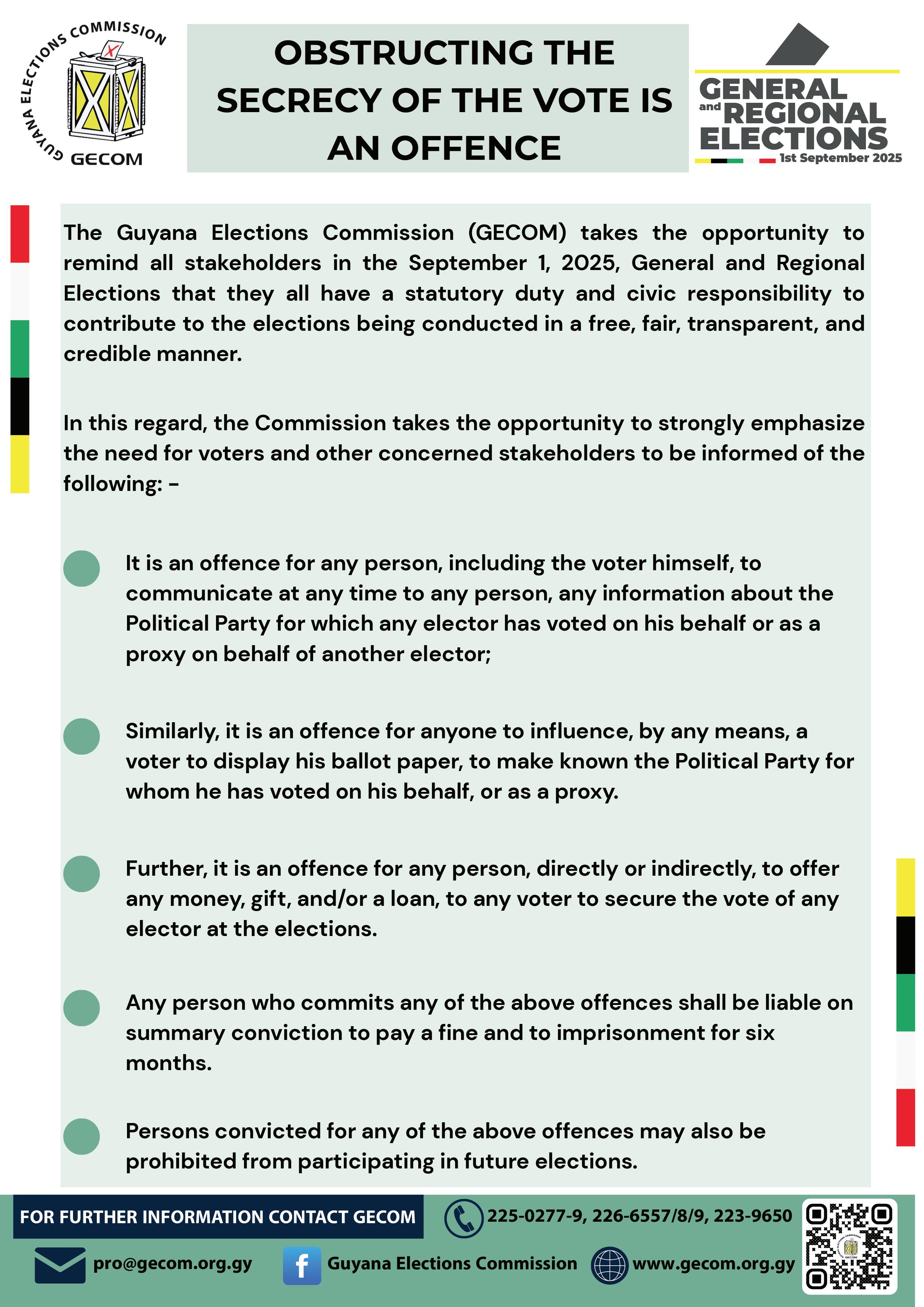



Taking
Transitioning from different businesses into the food industry is a task requiring faith and hard work
Transitioning from different businesses into the food industry is a task requiring faith and hard work





Taking
Transitioning from different businesses into the food industry is a task requiring faith and hard work
Transitioning from different businesses into the food industry is a task requiring faith and hard work
By Michel Outridge
ELROY Smith, a security professional and Guyanese national based overseas, returned to Guyana to invest.
He founded Prime Farms
Guyana in 2023, contributing to the local economy by providing unmatched services, wholesome products, and stable employment for locals.
Smith told the Pepperpot Magazine that his poultry
farm has the capacity for 25,000 meat birds at any given time and has recently been approved to have its first batch of layers.
He explained that he will see his first eggs in January

2026, importing 4,000 layers from the United States of America (USA).
Smith added that his facility is one-of-a-kind, with the implementation of automatic feeders and an automated processing line, all of which still require human labour.
He stated that Prime Farms employs locals from the village, and based on the season they would have in their employ 10 to 20 workers, depending on the availability of birds, with a two-shift rotation system in place.
Smith reported that they have workers year-round, but closer to harvesting time, they have seven employees on the farm. They also have workers on a 10-day basis with a two-week off-duty arrangement.
The businessman told Pepperpot Magazine that when he returned to Guyana, his place of birth, in 2022, he wanted to invest in a business but was unsure what to get involved in.
However, after being guided on the type of business he should start, he chose poultry, which is a lucrative, always in demand, and vital commodity for food sustenance. At Prime Farms, five large-capacity chicken pens can house 5,000 birds each, and he is hoping to expand in the near future.
“We believe quality and price should never compete,” Smith said.
Smith pointed out that Prime Farms began as a family dream to make farm-fresh chicken accessible to every table across Guyana.
He disclosed that his

birds are raised with care, dedication, and organic feed, reflecting a policy that embodies the wholesome quality of Guyana’s rich, fertile land.
“We are not just here to sell chicken – we are here to support families, uplift local businesses, and unlock the true potential of food commerce in Guyana. Through our online platform, we offer unmatched convenience, helping you purchase wholesale poultry that is fair and accessible,” he said.
Smith explained that he employs a villager to purchase and transport bulk feed from Guyana Stockfeed to his farm, allowing the locals
to benefit — his way of contributing to society.
In that way, rather than going for the feed himself, he provides work so the man gets paid while he gets his feed.
Smith said that it was direct intervention by the government through several agencies that enabled his farm to be conceptualised, and with zero VAT on the importation of equipment for his farm, he was able to start the business. He will continue to invest in doubling production of meat and eggs by the end of the year.
“At Prime Farms, our Turn to page XII

WHEN age, life, and a career in nursing had finally caught up with Maxine Fredericks’ mother, she wanted to ensure her mother was cared for, respected, and happy. This is precisely why she launched Fredericks Senior Citizens Home and Services, where she and her team have worked to create a warm, welcoming space for seniors not just to live, but thrive. In her interview with the Pepperpot Magazine this week, Maxine spoke about her moti -
mother while balancing their own families and careers. As Maxine explained, there were many challenges in doing so. “Sometime in 2017, myself and my sister were sharing, I would do six months and then she would do six months and so forth.”
During this time, she realised how important it was for her mother to remain involved in everyday activities. “I take her, I can lift her, put her in the wheelchair, and take her to the market with me, take her for drives, and so on, just everyday
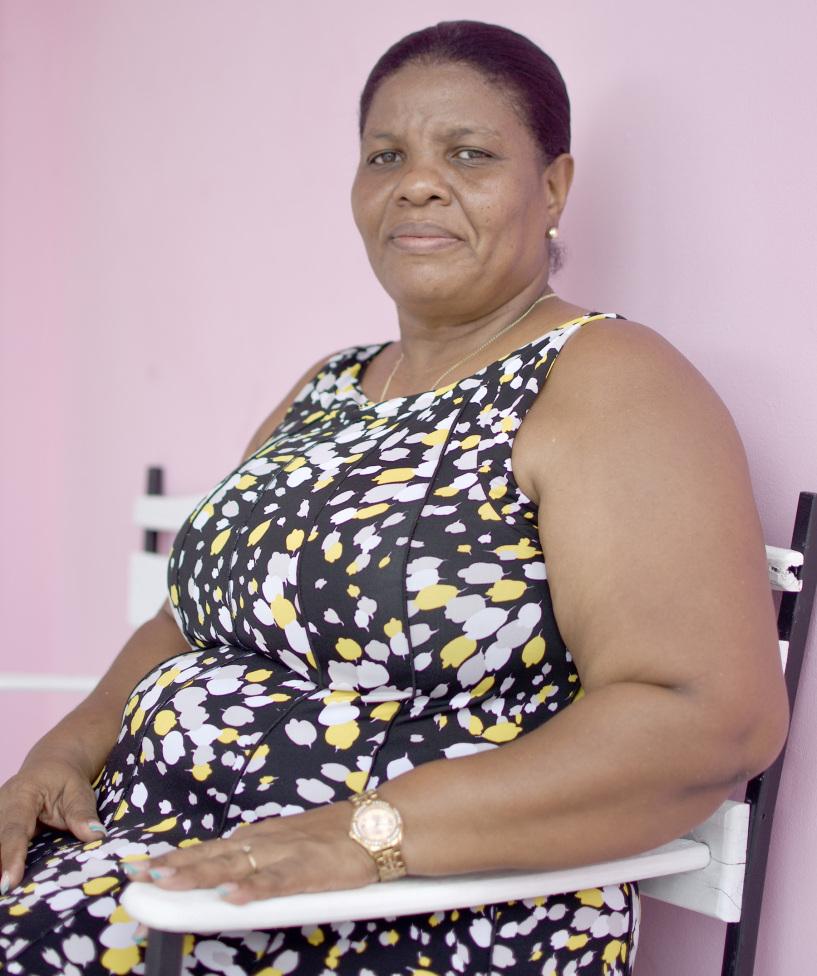
vations, her experience working with the elderly, and what it takes to provide quality care for our ageing loved ones.
In 2017, Maxine and her sister found themselves facing a reality that many families eventually encounter: caring for their loved ones as they age and become less able to manage on their own. The sisters shared responsibility for their
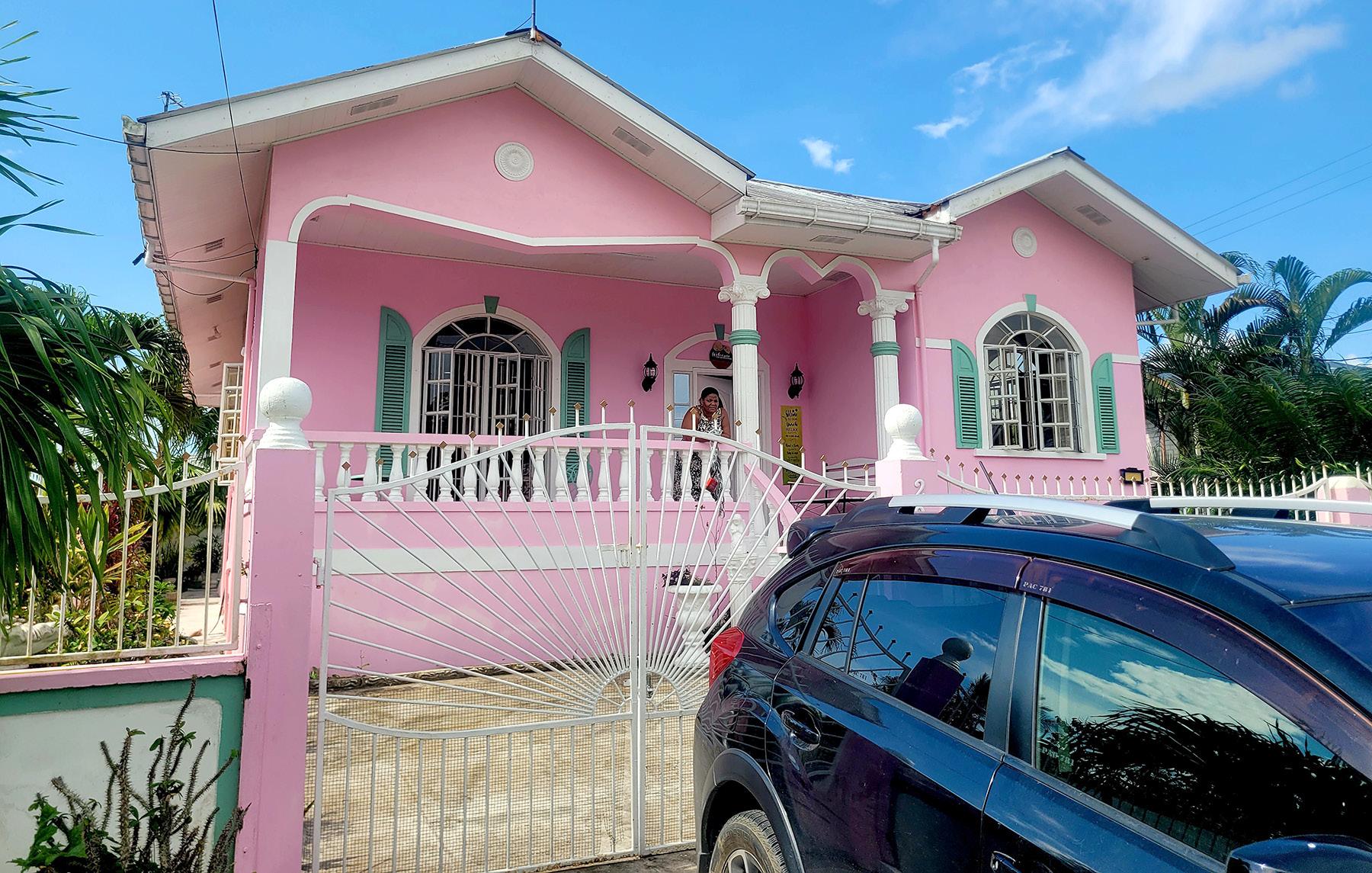
an elderly loved one; that is what prompted me to offer such a service to folks.” Her vision was clear from the start. “I wanted to offer a setting that is not like a hospital setting. It’s to make them feel at home. To feel like they’re a part of a family. So my home, it’s a home with a difference. It’s a home, like if you are at your own house.”
With a comfortable property,
thoughtful amenities, and a dedicated staff, Maxine has successfully turned that vision into reality.
Tucked away in Region Three, in the village of Parfaite Harmonie on the West Bank of Demerara, the Fredericks Senior Citizens Home is a warm and inviting establishment. Launched in July of this year, Fredericks is already home to a small but happy group of residents. “I didn’t
want my home to feel like a hospital because I think that is what is lacking.” Maxine further explained, “We are adhering to their meals and so on, but the setting to make them feel at home, we have a nice living room, we have a patio and the amenities to make them feel homely.” The idea was to strike a balance between professional care and a Turn to page XVIII
things,” she said. The experience also made her aware of a common fear families have when considering placing a loved one in a senior home: that it will feel more like a hospital than a home. “Having to deal with caregivers and to see the need, I know how some families might be struggling with having to care for a loved one. The challenge that lies in caring for
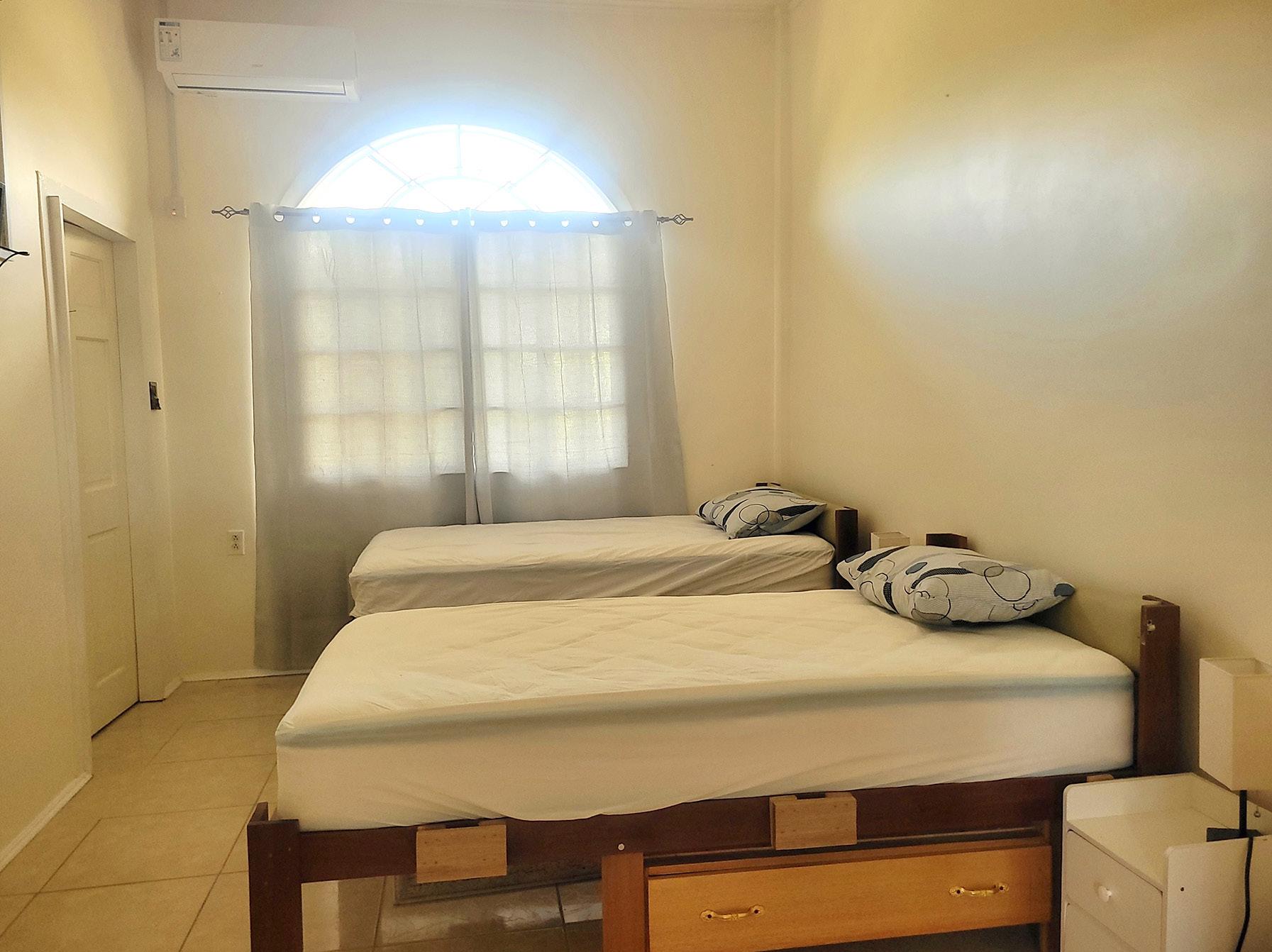

By Michel Outridge
HOMEMAKER turned entrepreneur, Natalie Trim, has capitalised on her baking skills to earn a living by incorporating cheese straw making from her home into a small business in Linden, Region 10 (Upper Demerara-Berbice).
The 59-year-old reported that two years ago, she took the bold step of becoming an entrepreneur, encouraged by her son to do so.
Trim, a mother of two and a grandmother of four, told the Pepperpot Magazine that she had been baking at home for a long time. She started by watching her mother do it, and after she gained experience, she began making homemade cheese straws.
She added that she comes from a family of gifted bakers — her grandmother, then her mother — and has taken up the tradition, making it her livelihood.
Trim explained that her grandmother had a bakery at Wismar Shore, Linden, named Rosanna’s Bakery, and all her aunts, mostly the women in the family circle, were good bakers.
She said they also provided catering services for events and other occasions and they made the best baked goods, including cheese straws.
Trim pointed out that it was all home-centred until they received orders to cater for events, and they started doing it as a small business.
The small business owner told the Pepperpot Magazine that her son encouraged her to go forward with the venture, and he designed the pouches for packaging, which were printed in China and imported.
Trim stated that she began to vigorously market the product in Linden and farther afield, including at supermarkets and Chinese-owned businesses.
Trim’s Snacks, made with real cheddar cheese, are produced from all-natural products, locally bought and prepared in a hygienic environment. She credits her success so far to her family — her children and husband — who are always there to lend support when needed.
Trim disclosed that her cheese straws are unlike any other because of the way they are made and the care and intention behind the
product.
“I don’t rush the process; each batch is made thoughtfully, shaped by hand, and baked until they have that perfect golden colour and crispness,” she said.
Trim added that it is a product made with love, so when you bite into it, you experience the contrast of a light, flaky crunch that gently melts away, leaving behind a subtle richness that lingers.
She noted that the cheese straws are not just snacks — they are little moments of comfort and joy, crafted to turn everyday occasions into something special and memorable.
The product is also marketed at the Guyana Shop on Alexander and Robb Streets, Georgetown. As it is registered as a business with the Guyana Marketing Corporation (GMC), she has received tremendous support in terms of training, exposure, and participation in local expositions.
It has been two years since the launch of Natalie’s Cheese Straws, which are being retailed for $300

per pack countrywide at leading shops and supermarkets.
Trim said the product is of high quality and is a favourite snack among Lindeners. It is in high demand in the community and is widely sold in Linden.
She is a resident of Amelia’s Ward, Linden, one of the biggest housing areas in the country, and she foresees the growth of the small business, which is operated from her home.
Trim related that she would like to expand with a baking facility outside of her home-based business, with a private space to accommodate a bakery and also market the product in a storefront setting.
The small business owner reported that presently she is trying to have the product on sale at Massy supermarkets, but is awaiting a response.
The real cheesy cheese straws are said to be one of the most reached-for snacks in the community due to their freshness and acquired taste.
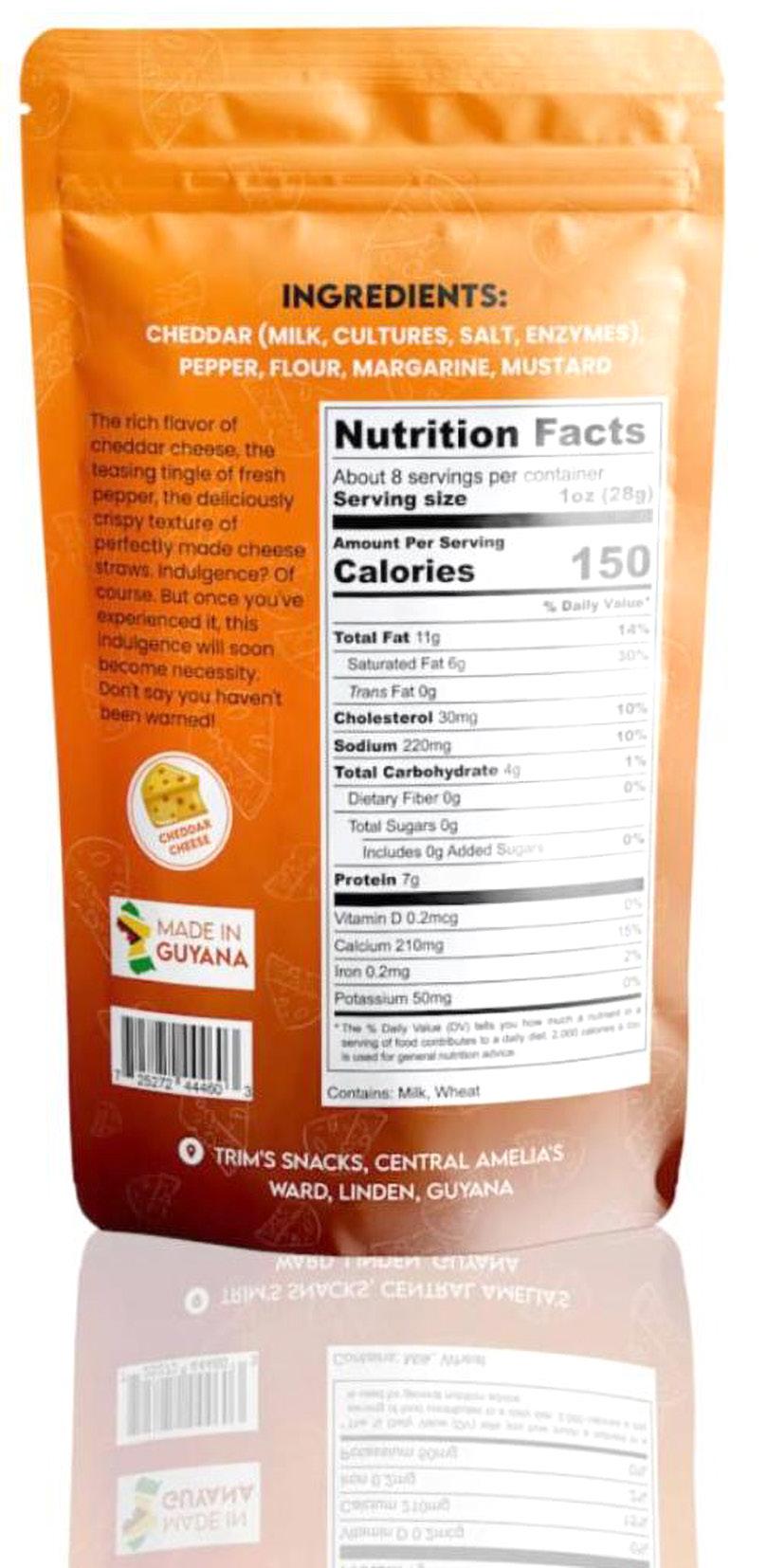

By Michel Outridge
EDEN Corbin, a cheerful young attorney in training, is optimistic about his role in the Guyanese legal fraternity, with a primary focus on youth advocacy, pro bono work for locals, and his growing interest in politics.
Corbin told Pepperpot Magazine that he was a student of Queen’s College and wasn’t very fond of science subjects. By the time he was in third form, he was encouraged to pursue a career as an attorney, as he was the one who would engage in detailed debates.
He opted to pursue a career in the business field and also studied social studies and history. He wrote 13 subjects at the Caribbean Secondary Education Certificate (CSEC) and was successful.
Corbin left Queen’s College in 2014 to attend The Bishop’s High School, and it was then that he was given a work-study attachment at the Parliament Office.
He was among the second batch of students and, at first, he was at Hansard, then moved on to the Public Relations section. During this time, he found he thoroughly enjoyed it and wanted to learn more.
In 2015, Corbin was selected to be the Prime Minister in Youth Parliament during the APNU administration and he took his role seriously.
It was when he got to rub shoulders with the real Members of Parliament (MPs) that he came to the realisation it was what he wanted to do. It felt right, and he had a vested interest in it.
Corbin, an attorney in waiting, enrolled at the St. Augustine Campus in the West Indies to pursue his Bachelor of Laws degree (LLB), a three-year programme that was sponsored.
He, however, opted to return to Guyana after his sponsorship ended due to financial constraints, to work and raise funds to complete his legal education abroad.
Corbin told the Pepperpot Magazine that while he was studying overseas, two things happened in his favour. One, he was elected to the Guild of Students of the University of the West Indies and was the Chair of the International Affairs Committee as a firstyear student who competed with second-year rivals and won. When he returned to Guyana,
Attorney in waiting, Eden Corbin (Delano Williams photos)
he went to the Parliament Office to engage them in launching the Youth Mentorship Programme and worked closely with the Clerk of the Assembly, Sherdel Isaacs, to whom he reported and from whom he sought guidance.
He pitched the idea to have all levels of students, including those pursuing tertiary education, participate in Youth Parliament to make their contributions in 2017.
Corbin had to depart from that scene and moved on to other things. In 2019, he was employed by Attorney-at-Law, Dr. Dexter Todd, who was at the time seeking support staff to conduct research.
He transferred successfully to the University of Guyana (UG), where he completed his degree in law and went on to pursue his Master of Laws in Trinidad and Tobago at the Hugh Wooding Law School.
Corbin got his Legal Education Certificate and returned to Guyana to work and serve his community.
Presently, he is waiting on the final list to be submitted to the local bar and his role at Dexter Todd and Associates law firm will be presented to the Chief Justice by Dr. Dexter Todd and Roysdale Ford.
He explained that he has experience in court as a legal assistant to Dr. Todd, but, without being admitted to the bar as an attorney, he cannot represent anyone in court or act on their behalf at the police station.
Corbin is among the 13 staff members employed at the law firm, which is located on South Road, Georgetown.
He works directly under Dr. Todd, who has been moulding him to play his role when the time comes.
Corbin is passionate about youth advocacy and doing pro bono work to empower young people to present themselves as worthy of opportunities and to seek opportunities for self-development through education.
“I want to provoke youths to get educated, to seek out opportunities, to become employed and to empower themselves,” he said.
He is the son of educators, teachers who travelled around the country to work. They were renting, but these days he resides in Farm Housing Scheme, East Bank Demerara.
Corbin’s dad is from Berbice, and his mum is from the city; they were the driving force behind his success.
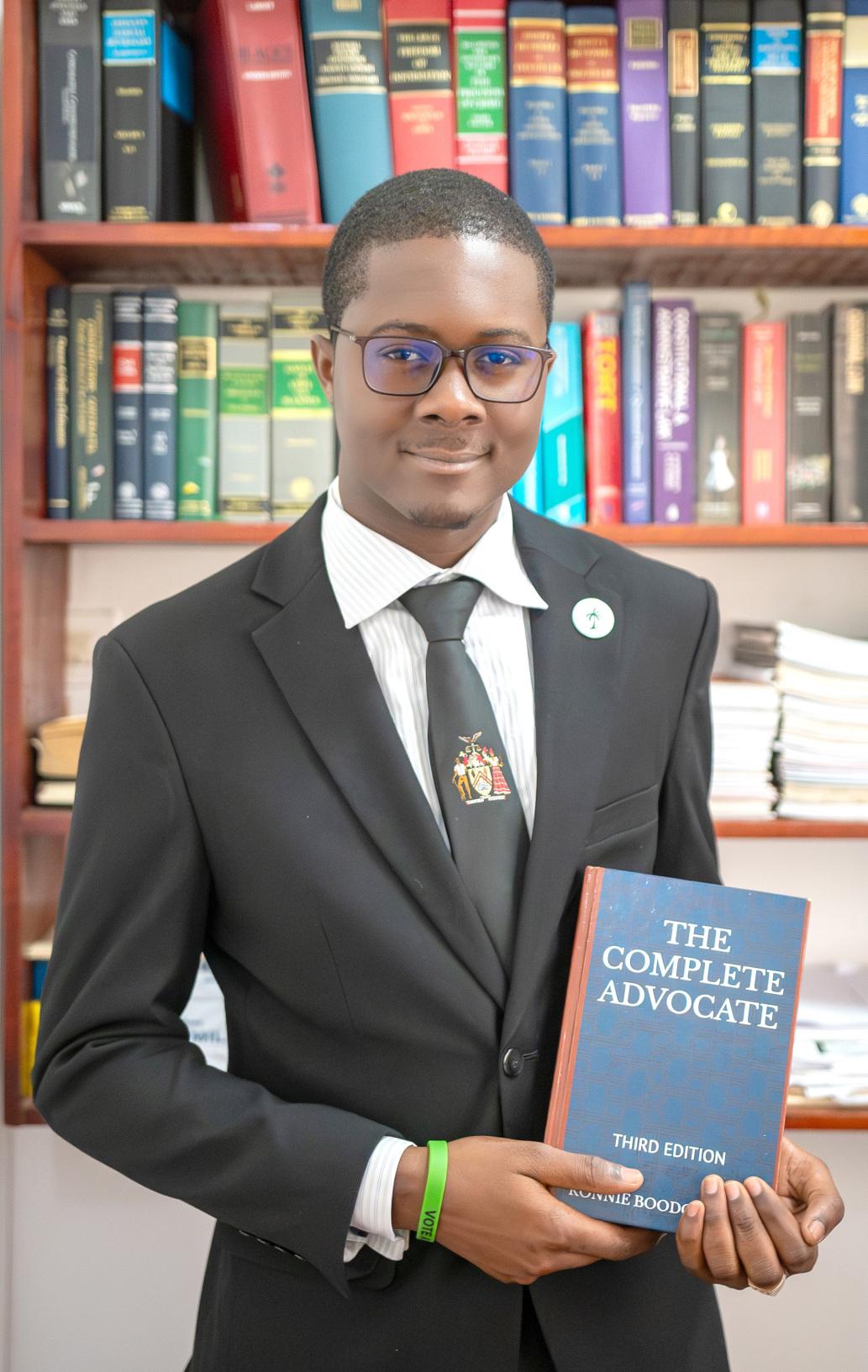
At a young age, his father encouraged him to read books, after which he had to do summaries, which were reviewed.
Corbin said he admired his parents, noting their dedication as teachers, and at one time, he even wanted to join the profession.
He reported that his parents have supported him all the way, even to this day. Apart from his zest for the legal profession, he is creative and enjoys playing the piano, writing poems, and also playing the drums.
Corbin added that he was a member of a band in his high school era and that was fun back then. He is also a volunteer who has made significant contributions to youth development behind the scenes, to date.
By Michel Outridge
PROVIDING a reliable service with authentic Creole cuisine is the hallmark of Stove Top Restaurant and Bar, located at 194 Charlotte Street, between Orange Walk and Cummings Street, Georgetown — a hotspot for locals and visitors to enjoy delicious food coupled with a surreal ambience.
It is one of those places you happen to find by coincidence, and, after that, you keep going back because of the service and quality of the food.
Stove Top is owned by Marvin Kitt, a Guyanese who was a well-known taxi driver and promoter of Marvellous Entertainment, and transitioned into a businessman in 2021. Kitt told the Pepperpot Magazine that transitioning from being a promoter/ taxi driver wasn’t a smooth process.
In fact, it was a trial run marred by hurdles. However, there was light at the end of the tunnel for him when his business was launched through hard work and dedication.
The 55-year-old explained that opening a new business, especially a restaurant, is not easy, but he did it with the support of a few people who believed in him.
The businessman stated that Stove Top offers a daily menu of foods for breakfast, lunch, and dinner, and it is promoted via social media, particularly Instagram.
The father of two stated that he provides stable jobs for five people and that he has by his side his spouse, Crystal Smith, who is the in-house manager and head cook at the establishment.
Since its 2021 opening, Kitt reported that business has been fair, and he hopes to expand with another location.
He is in the process of looking for a spot to buy since he is currently renting the location where Stove Top Restaurant and Bar operates.
Kitt added that renting takes away from making a profit, as it is an investment he has to make to pay staff, maintain the capital to stock up, and keep the doors open for business.
Originally from Linden, Region 10 (Upper Demerara-Berbice), Amelia's Ward, he relocated to the city to earn an honest living, taking on various jobs initially to establish a solid financial foundation before managing to establish his own business.
Kitt said the menu at Stove Top changes daily, and they prepare strictly Creole foods using only local ingredients. It offers dine-in and takeaway options for
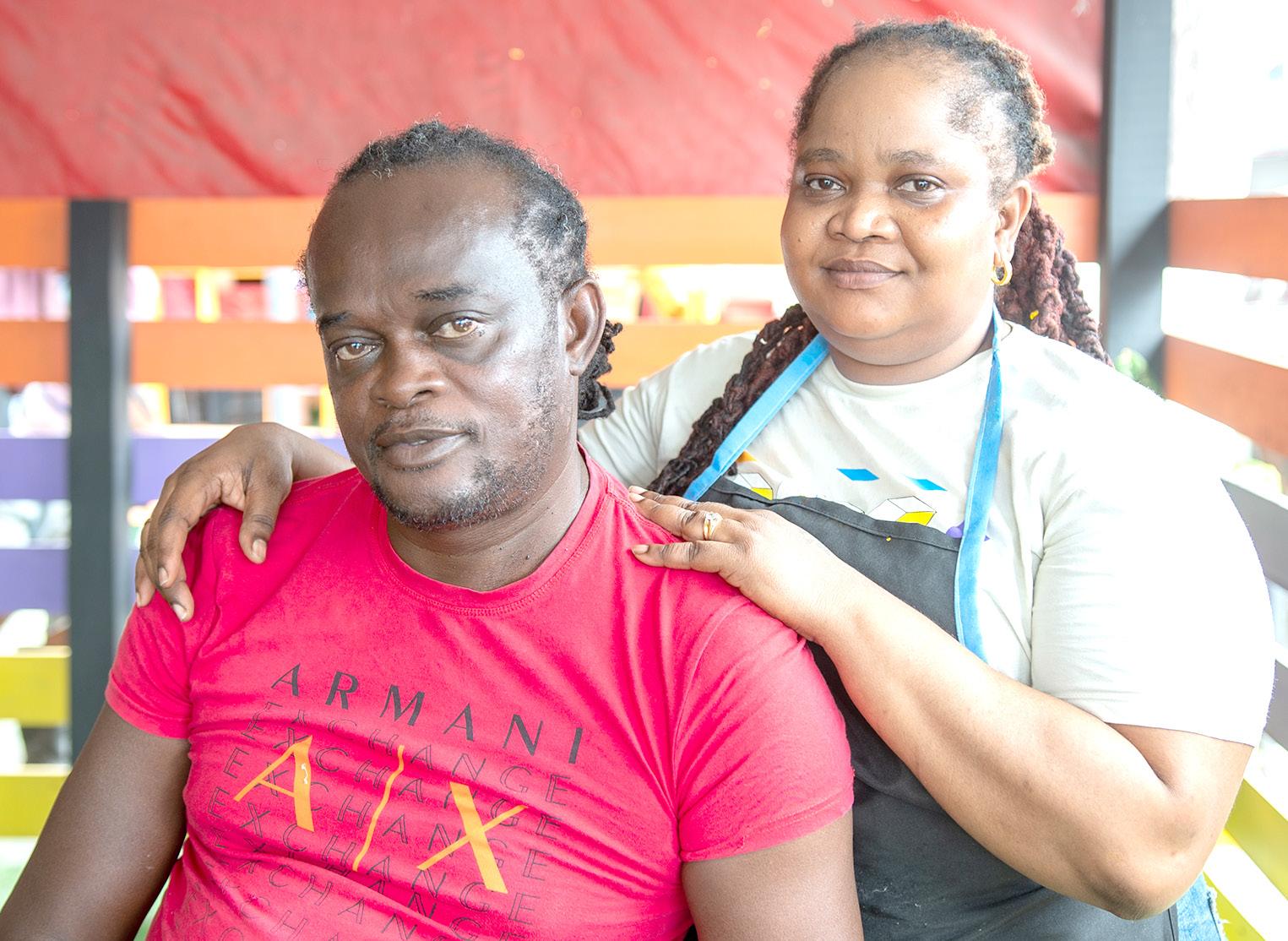
customers.
However, on Thursdays, it is a day of curries — with nine different curries. It is something to look forward to, and customers can call in to place their orders.
Overall, Stove Top Restaurant and Bar offers a great dining experience in Creole cuisine, unlike any other, and it is the place to be when you feel like indulging in authentic local fare.
The portion sizes exceed expectations for the price, the service is well-managed, and the beverages are served nice and chilled to your liking.
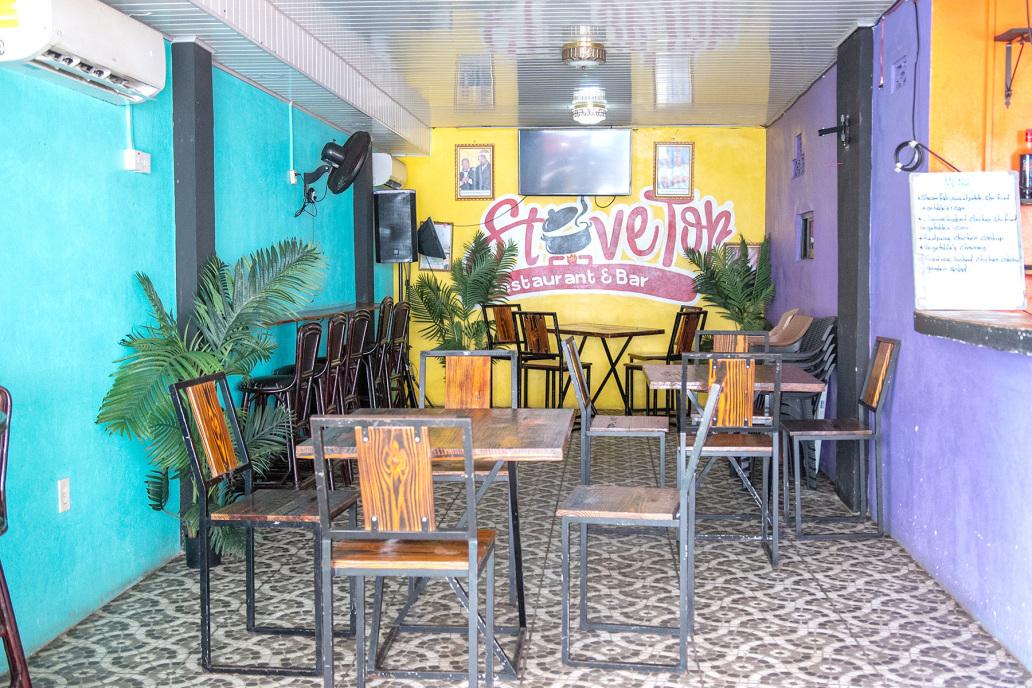


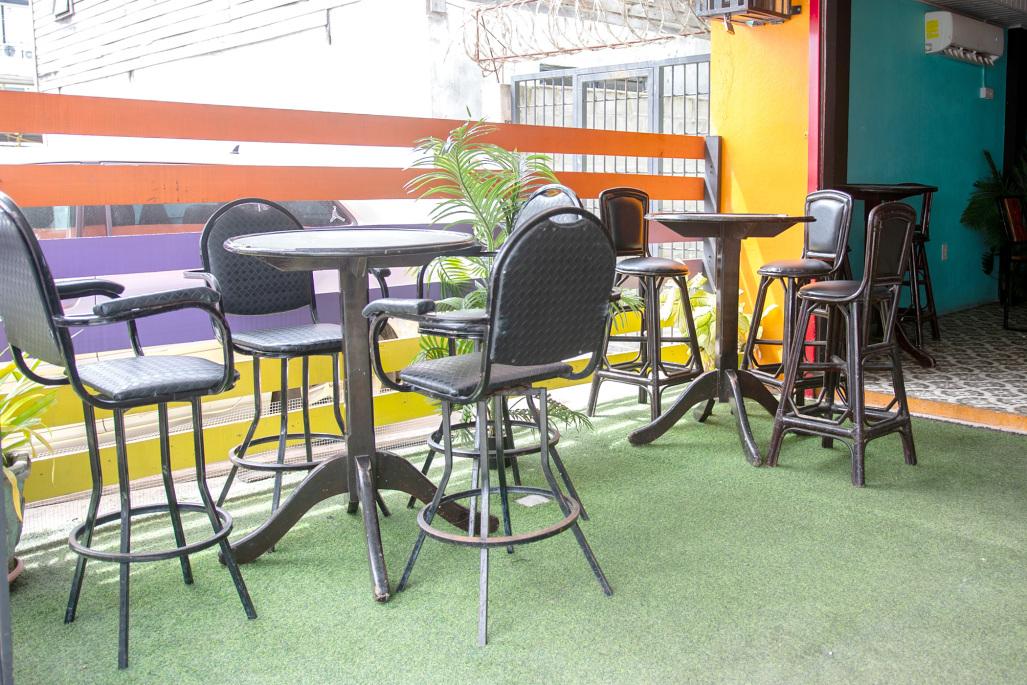

“I did that?”
“Yep,” he said with a little smile.
She still had that stunned look, not quite believing what he said.
“And you were a poor boy?”
“Yep.”
“But all this,” she spread her arms indicating the garden, orchards and house, “How?”
“Let’s just say hard work and perseverance.”
“Wow, that’s something!” she exclaimed and looked at him, still with a measure of disbelief.
“But why did I bully you?”
“Well, you were one of the wealthy kids, pretty and smart, and I was the boy with hand-me-down clothes, old bag and worn boots.”
She shook her head slightly as she tried to process that in her mind.
“I can’t believe I did that.”
“Well, that was a long time ago,” he said with a smile that dismissed the bad things she had done to him.
She sighed with a little relief. “It’s good to see you did great for yourself.”
“It was quite a challenge, given I didn’t do well in school and my mother was still struggling, so I needed to earn money, and I dropped out to begin working at a farm.”
“Amazing, the successes you’ve gained,” she expressed.
“And you became the lawyer
you had said you wanted to be.”
“Yes, it was my dream.”
“Congratulations.”
“Thanks.”
Her friends came back extremely happy with the photographs they had taken and promised to visit again. Amar, knowing the great efforts and heart his sister had put into creating the picturesque dream garden, called her from his phone.
“Can you come over to the Toucan Benab, please?”
He introduced her to the small group of visitors. “This is Attorney
Sookram and her friends from the UK.”
“Oh, wonderful!” Sarah expressed with a warm smile. “So nice to have you here.”
“It’s marvellous,” was their comment. “We simply love it.”
“You’ve done an amazing job,” Alana complimented her.
“Thanks, but I couldn’t have done it without my brother’s support.”
“That’s so great.”
A phone call came in for Sarah, and she excused herself to take it. Then, she turned back and offered
to Alana and her friends, “Would you like to try some freshly baked cherry and guava tarts?”
“We’ll be delighted,” they accepted. Sarah took them to the house and invited them to sit on the downstairs veranda to enjoy the cold, fresh drinks and tarts.
“This is heavenly!” they expressed. As customary to all visitors, a small complimentary basket of fruits was given to them. As they got ready to take their leave, Amar walked up to them and said quietly to Alana, “It was nice having you here again.”

She smiled, “And thanks for treating us so nicely.”
He nodded with that pleasant, casual smile and, taking a deep breath, she stepped a little closer to him and said, “I’m sorry for the bad things I did to you.”
“That’s okay, I never held any animosity.”
“See you another day,” she said with a promising smile.
“Very beautiful,” his sister said at his shoulder as Alana drove off.
“Yes, she has always been.”
She did not visit the garden of dreams for a little while and though he tried not to think of her, he just couldn’t stop his thoughts, and he wondered, “Is she feeling guilty because I told her she used to bully me, or is it because she knows now I was once poor and she doesn’t like that?”
One month later, she visited with two of her colleagues and all his worries dissipated.
“We had a big and challenging case,” she told him, “and we won, so it’s time to relax a little.”
“Congratulations,” he extendedto the three attorneys. “I like to see women succeeding in their fields.”
“Thanks, that’s encouraging.”
And so, after unexpectedly meeting again since primary school, a nice casual friendship began to develop. They were not in the same social league or from the same
Turn to page XV


IF a person wants to trade poverty for prosperity, he or she must first understand the true definition of poverty. Poverty may be more than some one thinks
A person who wants success must learn about failure to prepare for success. Moving forward requires a clear understanding of the current situation. There are people
who wish to become great athletes, but without understanding what is required, they may continue to struggle at their current level.
This text provides indepth information about what
poverty is, helping readers understand this important concept. While there are many interpretations and definitions of poverty, the author provides a simple description of poverty, sup-

ported by an explanation.
Typically, poverty does not announce its presence, but it suddenly creeps into a person’s life as a stranger. This stranger seeks to graduate from a visitor to a friend, then a companion. Once poverty becomes a companion, it often refuses to leave the relationship, and it frequently threatens the person to whom it has attached itself. Poverty does not bring anything good to a person’s life, but if poverty becomes a companion, it often leaves behind many things. A lack of companionship often accompanies poverty, and people must be aware of this and take steps to prevent poverty from entering their lives.
In every attempt to move away from poverty, a better understanding of the issue is crucial, and the person trying to escape poverty must have a genuine dislike for it so that they will be motivated to change. When a person knows they need to make certain changes, they tend to develop a passion for implementing those changes. After learning about poverty, some people become zealous about making changes as soon as possible.
Poverty does not make anyone better; it only steals a person’s joy and happiness. Usually, it causes friends and family to have little to no interest in those affected by it. When people live in poverty, many opportunities will pass by and go to others who possess the same skills, knowledge, and attitude.
Some people exploit the poor. They expect poor people to work hard for little money, and they insult poor people after the task is completed. Countries may also exploit the poor by providing them with benefits that should be available to everyone. Many politicians like some people to remain poor, as they see them as a group that will vote for them.
Unscrupulous politicians become friends of the poor whenever election time approaches, making marvel -
louss promises they have no intention of fulfilling. Many substandard products, which often harm users’ health, are given to the poor because they cannot afford to purchase quality items that would cost them a few more dollars.
Some countries and companies engage in trade relationships with other countries because labour costs are very low, and people from low-income backgrounds are willing to work for minimum wages. However, after reading this text, those who are living in poverty must choose a life in which they will be respected and in which they will demand greater compensation so that they can also enjoy prosperity.
Escaping Poverty
No one should be living in poverty! In the previous chapters, a lot of information was provided about poverty. However, now is a good time to learn more about what a person can do to be prosperous.
Many people believe that to be prosperous, someone needs to make things happen for them. Yet those views can be changed, as the chapters in this section show. If a person wants to become prosperous, it takes effort from them and others.
Therefore, those who are waiting for others to help them achieve prosperity must now take the initiative to engage in activities that contribute to their own prosperity.
A person can contribute to their prosperity by learning from others. There are many lessons to be learned, and those who carefully observe and follow the requirements will be able to transform their lives, moving from poverty to prosperity.
Many people possess talents and skills that can transform their lives, but they are unaware of their abilities. Everyone must begin to search within themselves to discover what is hidden within them that can be used to help them Turn to page XV
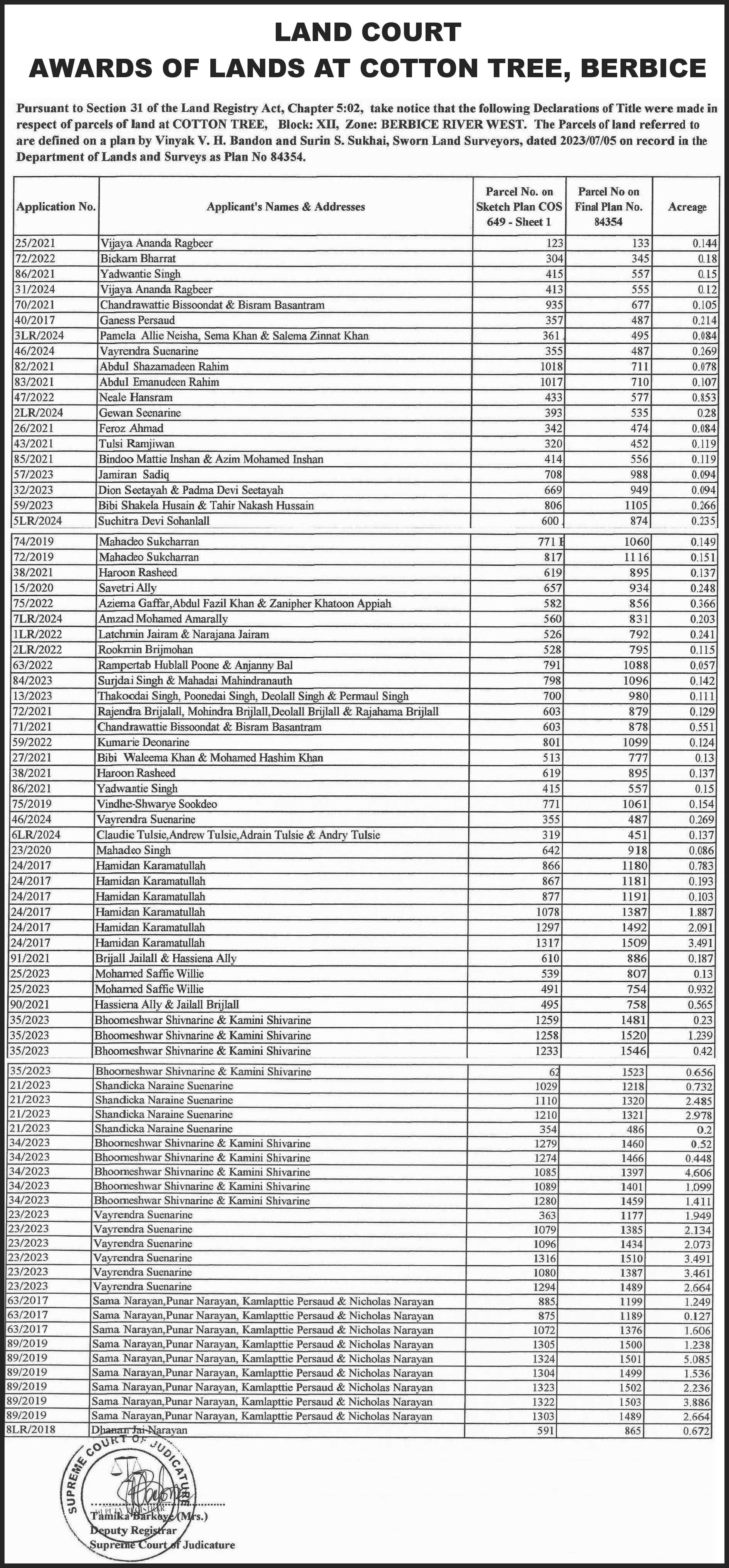

THE majority of the planter class viewed the efforts of the emancipated African descendants with envious contempt.
The business of plantation success lay with unpaid, or to be more specific, “cheap labour”, and much of the indentured labour, specifically the Madeirans, were physically inept for plantation work. They died quickly in the field. That group, it must be noted, were not colonised citizens of the British Empire.
To this day, we remain unsure of the real reason for their indentured journey, although some causes have been suggested, such as starvation in Madeira. Thus, some former slaves with in-depth training in the
sugar production process were paid. But in this age of lawlessness and spite, the platform was far from fair and humane.
Towards the emancipated, their livelihoods and ambitions were targeted at every step, with the intent to retain their dependency on the sugar plantations. With induced systems designed to frustrate the once-plantation labourers, they were already paying taxes for items that the planters were not paying for. The plantocracy, coupled with the local colonial administration, insisted that each emancipated income earner must purchase a licence to exist. All this was conceived to direct them
back to servitude on the sugar plantations, servitude that was construed of meagre earnings. It was known that some freed slaves were employed on the plantations with reasonable pay, but these were technical people who managed the very machinery of sugar production. The other plot was to encourage the weaker Madeirans to intercept the earnings of the collective Afro-community’s initiatives.
However, by the end of 1846, the planters were faced with external problems stemming from the very nature of their product. The bankruptcy of more than a dozen West Indian houses of long standing had had terrible effects throughout
British Guiana. The comparative inequality of taxation was to be borne by the separate classes, and the injurious effects of both on the standard of living of the labouring population led to widespread dissatisfaction. It was difficult for Governor Light to confirm that the “temper of labourers is soured”.
He admitted that it was not at all uncommon for remarks not of the most civil kind being made by groups of Creoles on meeting carriages and horses of officials, to the extent that the people were taxed to pay for such luxuries. This admission accepted that discontent was rife, widespread, and openly vented.
The fact that excessive taxes
were levied to fund indentured labour to sustain cheap labour costs led to acts of arson against the planters. In many areas, the Creoles rejected working for the planters and reverted to their own farming grounds, but there were always taxes and unfulfilled government commitments to drainage, etc. Such was the post-emancipation confrontations and mood at most times. What became surprising were the paths to education and engagement in cultural farming and cottage industries that were developed in the interest of survival, engaging thinkers across other groups who offered similar cottage industries.

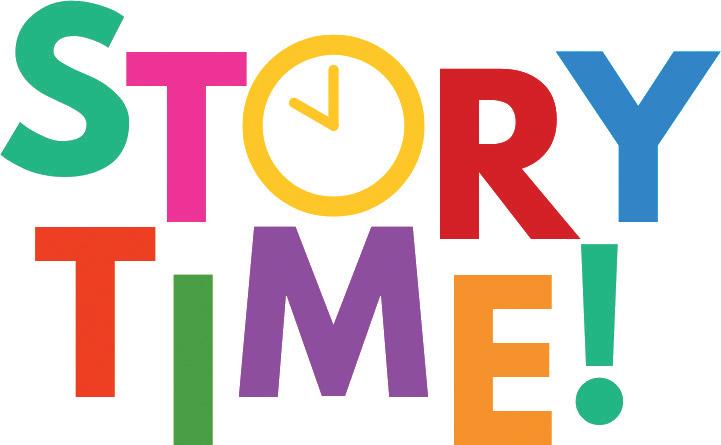
A HORRIBLE twist of fate and Aubrey’s life is over. How could I have prevented it, held onto him, protected him? I must not weep anymore, tears are counterproductive. I repeatedly tell myself, “As of tomorrow, no more crying.” But today is already ‘tomorrow’ and I can’t seem to contain the tears! I have to think, convince my heart to be brave and not go to that place inside my head where only confusion reigns. Focus on surviving without my soulmate.
My thoughts were interrupted by the voices of our grandchildren playing in the backyard. I walked to our bedroom window and watched them frolicking in the snow, climbing the playhouse and swinging on the rope, all with such unlimited energy and exuberance.
Aubrey and I used to call out to them from this very window, they would then put on an acrobatic show for us, each trying to outdo the other. I now listen to their laughter, forever the sweetest sound, even when my heart seems
to have gone astray. As I tap on the window, they look up and for a second I think they expected to see their Grandy standing next to me. Then the moment passed. Whatever the season, our grands always enjoy the backyard, along with the rabbits, squirrels, birds and the occasional deer darting between the trees.
My eyes divert to the landscape. Such tall pine trees, their snow-covered tips giving them a majestic look, like white crowns on green giants. A ravine flows between our backyard and a conservation park that has many tall birch trees. On windy mornings between spring and fall, one can hear the rustling of the branches, their leaves flirting with the clouds, and the soothing sound of the mourning doves call, Nature’s alarm to awaken you, feeling elated without a cause.
That’s how I felt waking up beside Aubrey. When will I adjust to living without him? Speak of him in the past tense? And when will I find myself again, my whole self, one person instead of half of a couple? There must
be a positive side to this lost lonely feeling. But when and how? Seeking God helps sometimes. I have to exercise more faith for my sanity and comfort.
As I watch my grandchildren’s antics, I think of how, as children, we are imaginative, uninhibited, happy, and live in the moment.
Then as adults, we are burdened by fear, greed, hurt and many other emotional turmoils. So much to bear, the self is lost. We then become wandering souls in this vast jungle, worrying about tomorrow, regretting yesterday, while forgetting how to live today. I pray my grandchildren always remember to live in the moment.
I went downstairs as the boisterous four came in, snow-covered, hungry and hoping to be entertained by Grammie. I provided snacks and a deck of playing cards. Then with full stomachs, tired limbs, bold statements and endless questions, which include Leo’s “Guess what? Grammie never saw snow until she was very, very old!” (22 years).
Jasper remembered his

Grandy teaching him how to play poker. Then Lily asked, “Grammie, how was your life in Guyana and when did you and Grandy meet and fall in love?” The eldest, (Leo) in his best authoritative voice said, “Lily, don’t ask Grammie such personal questions!” And our youngest, Ruby, who spent a few formative years in her Grandy’s company, as he taught her so much – including introducing her to the moon – claimed sadly, “I miss Grandy; he always helped me with my jigsaw puzzles.”
As I listen to their questions and declarations, I think now is the time to enlighten our munchkins about my ‘snowless’ life in Guyana, and the years their Grandy and I shared. For, I believe, some moments in life are too splendid to be contained. Our grandchildren should know!
When I was seven years Turn to page XVII




vision is simple: to deliver exceptional quality and service while empowering our community. From our family to yours, we look forward to providing you with the best wholesale shopping experience – built on trust, care, and the love of fresh, local food,” Smith said.
Prime Farms is located at Lot 4 Polder, Canal Number Two, West Bank Demerara, and aims to market its products directly to consumers.
Although the cost of feed and chicks has decreased, the price for eggs at this time is $2,300 per tray, while the price for chickens fluctuates.
Smith told Pepperpot Magazine that he owns a 14-acre plot of land where Prime Farms is located, and he hasn’t regretted his investment because the process was smooth due to the government’s pro-business stance.
He revealed that, with the government’s input, Prime Farms was established, and he was able to benefit from incentives to grow the

and


IN Guyana, the election season is taken very seriously by Guyanese. Election Day is also often seen as the final stop after a long season of campaigning, inking fingers and casting votes. Many of us leave the polling stations believing that we’ve done our part in performing our civic responsibilities.
I am writing this column piece to enlighten you that voting is not the end of one’s civic responsibility. In fact, it is just the beginning. It is the days, weeks, and months after the elections that are most crucial for shaping community, promoting peace, and ensuring transparency in higher offices.
On Election Day, when we cast our ballots, we perform an act of selecting who we would want to govern the country, but this is not enough. We also have to uphold civic engagement, which requires active participation.
Voting beyond the ballot means showing up to those town hall meetings, even when participation is low or the media is not present. It is when we volunteer with our local Town Councils or Neighbourhood Democratic Councils when they need help.
It means reading, understanding, and commenting on local policies and agendas to advocate for better reform. It is when we use our voice and our own unique skills to have respectful conversations about community challenges and change.
You see, many of us do not look into the mirror and ask what we can do to create change as well. We often forget that, as citizens, we also have power in our voices and our decisions. As such, it is not only about casting a vote, but also about ensuring that our vote counts and that those who govern our communities are held accountable for the decisions that affect our everyday lives.
Democracy in a country works best when its citizens are as active as policymakers and politicians. As an
old Guyanese would say, “it is a two-way street”. The overall system works more efficiently when all of us are actively involved, because only then will our true concerns be heard and hopefully addressed.
Our civic engagement after the election is not only centred around governance or decision-making. It can also extend into many other areas — from volunteering for social causes that promote cohesion, to participating in your town anniversary events, gathering community members for a clean-up campaign, offering support for small-scale projects such as repainting a pedestrian walkway in front of a local school, and even offering mentorship to young people who may need extra guidance. Community work is never at a halt, is ever evolving, and is always needed.
I would like to take this opportunity to acknowledge that we are particularly vulnerable during an election cycle in Guyana. I know that, by now, many of you are already aware of this, given our history.
As such, I urge all policymakers and politicians to keep their words and promises of fairness and accountability during the election cycle. I also want to use this opportunity to remind all Guyanese that the election cycle is not a battlefield. The act of disagreeing is all a part of a democracy. However, there should be no excuse to incite violence. It is during these very fragile times when we need the leaders of our communities to also use their voices.
It often pains me to see many religious leaders, community leaders, or local groups stay silent when their community needs them the most. I believe it is their civic responsibility to use their platforms and influence to foster community cohesion and togetherness.
Our civic responsibilities, despite our titles or backgrounds, should also
not be limited to just the election cycle. This should be an ongoing phenomenon of civic engagement and participation. Community leaders should use their plat-
forms to enlighten people about what it means to live in a democratic society and the importance of opposing views or disagreements in a Turn to page XV
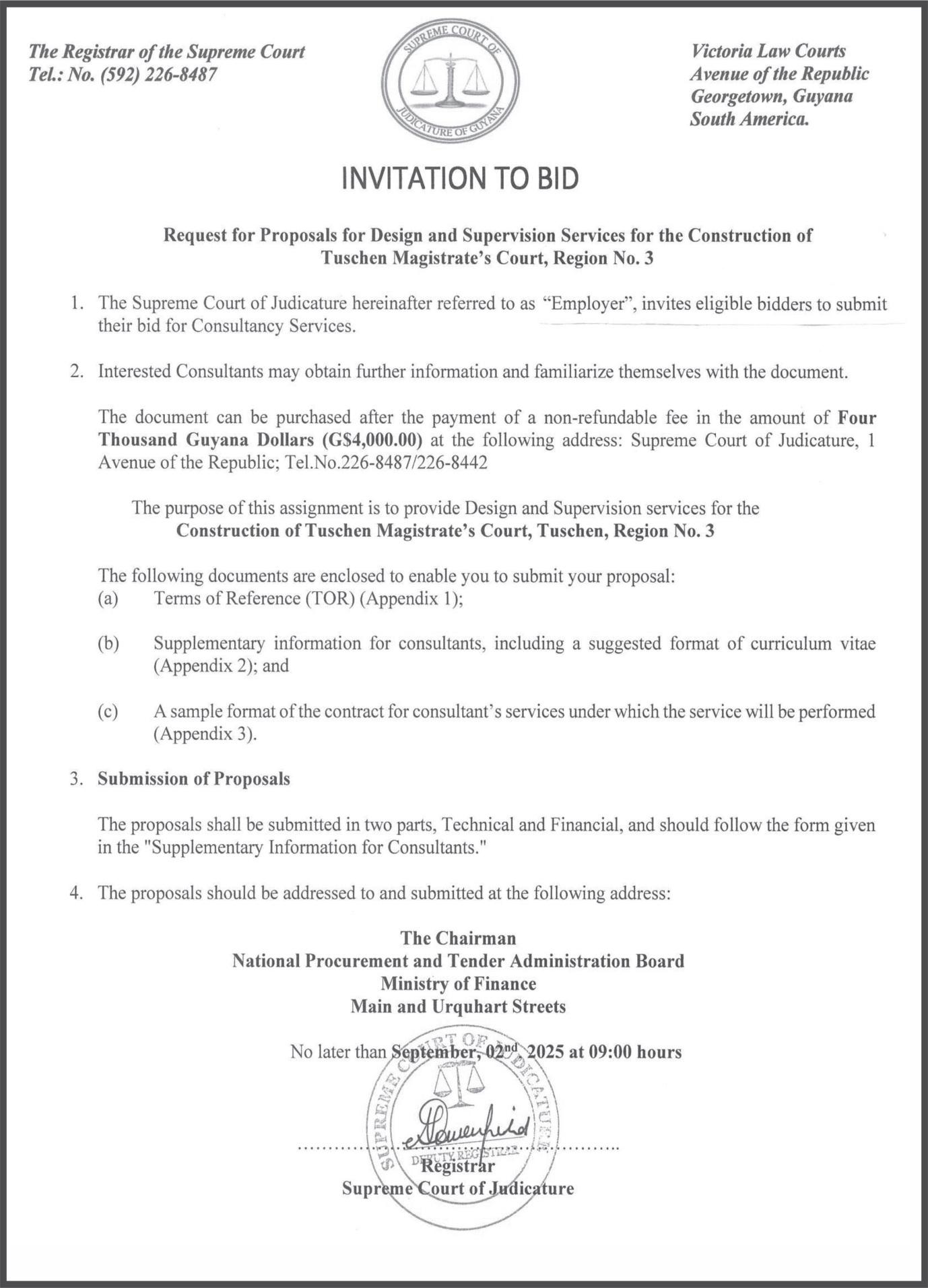

family status, but they enjoyed each other’s company. He liked the way she smiled, the sound of her laughter, but sometimes, while talking, he noticed a flicker of sadness in her eyes. It was clear she was worried about something, but he did not let on to her that he noticed until one day, she said to him, “Your mother is such a sweet woman.”
“Yes, and a superheroine to us, her children.”
“And your father?” Amar sighed and said with a wry expression, “He left us a long time ago, so we grew up with a single mother. Then many years later he died.”
“That’s a story of struggles and heartache,” she said. He didn’t say anything and after a long while, she looked up at him, that sad look in her eyes.
“My mother is a very
From page VIII
beautiful woman, soft and kind, but sadly my father cheats on her.”
“Oh, sorry to hear that.”
“And whenever that crosses my mind, it makes me feel sad, to a point where I don’t want to talk to anyone, just wanting to be alone with peace and quiet.”
“So that’s why you fell in love with the place?”
She didn’t have to answer because the look in her eyes and the way she smiled answered the question for him. An overwhelming feeling
of joy filled his heart and he said to her, “You can come here anytime you want. Even though I won’t always be here, I’m most times at the farm.”
“Thank you,” she said, and reaching out, she touched his hand, “You’re a kind person.”
And as the months went by, they met at weddings, birthdays, at clubs and restaurants, and the casualness of their friendship changed to something closer, but he wasn’t sure how she felt
about him. He eventually braved his mind to ask her.
“Is it okay to introduce you as my girlfriend?”
She turned to look at him and asked with no smile on her face, “Why?”
He was a bit taken aback by her response, and he couldn’t retract the question, so he answered from that unique feeling in his heart.
“Because I like you very much.”
She held that serious look for a longer moment, then smiled slowly until he could
From page VII
see the warmth in her eyes. Then she answered, “Yes, you can.”
Amar exhaled with relief.
“Darn, I thought you—” She laughed a little, “I was just playing with you.”
For the first time, he saw a spark of love in her eyes, and lifting her up in his arms, he spun around with her, as she squealed with surprise. He put her down and held her close in his arms in the dream garden, for in life a dream had found him.
trade poverty for prosperity. There are many lessons to be learned from the wealthy. The earlier some of those lessons are learned, the faster the person will become prosperous.
When a person increases their academic knowledge, they give themselves an opportunity to trade poverty for prosperity. There will be a cost attached to personal academic development, but the benefits are often greater than the sacrifices. Moreover, whether a person is rich or poor, they must maintain integrity.
Some may not see the benefits of establishing and maintaining integrity, but some are promoted because of their integrity rather than their academic ability. Integrity can take a person places where knowledge may not be able to carry them. Furthermore, a person must make a deliberate effort to speak positively about their future, as the words they utter can significantly impact their future.
People can have access to many resources, but when they fail to manage them effectively, they often find themselves living in poverty. Time and money are two resources available to many.
Both must be effectively and efficiently used to help a person move from poverty to prosperity. Those who have little money must seek to earn more. This may require seeking additional employment or changing employers. They can also be involved in other businesses that generate more revenue. Some people have more money, but they misuse such funds. If they want to become prosperous, they must reduce their expenditure.
Even if a person is earning little money, they must still take every opportunity to manage and minimise their expenditures to move from poverty to prosperity. Prosperous people must leave an inheritance for their offspring. Poverty must cease immediately, and the generations that follow must live a life of prosperity.
More Information about Geary Reid and his books:
• Amazon: http:// www.amazon.com/author/ gearyreid
• Website: www. reidnlearn.com
• Facebook: Reid n Learn
• Email: info@reidnlearn.com
• Mobile: +592-6452240
democratic society all throughout the year.
I hope that, from September onwards, we foster a new election culture in Guyana, where we strive to understand that, regardless of who wins, we must collectively work for the betterment of our nation. Nation-building should not stop simply because of disagreements and differences of opinion.
As our country gears closer towards an election, I hope that you keep this
From page XIII
article in mind as you cast your vote.
While casting your vote gives you power for a day, your active participation and citizenship can collectively allow all of us to have power every single day in our democratic society.
Your one, singular action might seem insignificant, but if all of us collectively understand the true power of our citizenry, then all our voices can be amplified for the greater good.


IF you had to identify yourself in a room full of people whose faces you could not see, would you be able to do so? Could you recognise yourself solely by the manner in which you speak, move and interact with
OVER the course of our lives, all human beings unfurl and bloom like the creased pages of a diary that is slowly being filled with fresh stories. We allow life to embrace us, and, in return, we are granted the space to be who we are. As we grow up, the gentle discomfort and pressures of creating your identity fade. Our skin becomes our armour, and our heart fills with the satisfaction of being able to live our lives just as we had imagined in our
childhood dreams. Even those who may not yet have attained their goals are comforted by the freedom of choice—the grace of knowing that, even though they have not reached their destination, they still have the power to steer themselves towards it. The reward for those who are true to themselves is the ability to look into a mirror and respect the person they see. They shall experience no loss or failure that can take away this ability from
the world? Even if you could complete such a task, would you come out of this situation with the complete
them.
Recently, I discovered the story of Narcissus from Greek mythology. Narcissus was a young man who was prophesied by a prophet to live a long and fruitful life as long as he did “not know himself.” He was known to be extremely handsome but prone to rejecting the affections of others, no matter how sincere they were. Then, one day, as he was travelling through a forest, he came across a body of water and caught his reflection glimmering
trust that you are entirely unique from the people who surround you?
Oftentimes, we like to
on its surface. He leaned forward and watched as his own perfect face peered back into his eyes. Then, he remained there, falling in love with his own reflection until he passed away from thirst and starvation, unable to tear his eyes away from it. The spot where he died was marked by a bright yellow flower known as the Narcissus. We now commonly refer to the Narcissus flower as the daffodil.
The myth of Narcissus is a fascinating tale


believe that we are exceptional. We are, of course, quite different from one another in more ways than one. We each have characteristics that could have been acquired in no other manner than by being ourselves and living through the experiences we have. Yet, we are still extremely similar to each other. We may take different paths during the course of our lives, but we often wish to achieve the same goals. We may have different ways of seeing the world, but we often develop similar opinions about the things we observe.
that offers us a valuable lesson. It teaches us the dangers of self-absorption and the losses we may face by refusing to open ourselves up to the love and affection of others. We may speculate that perhaps if Narcissus had already been in love with another person, he might never have been inclined to fall so madly in love with himself. It also shows us that our destiny is rarely within ourselves. We may spend a lifetime preparing ourselves to be better people, but this preparation will not mean anything if we do not use it to change the world for the better. Beauty and good character have no power if their positive influence does not extend beyond our own boundaries.
As we grow, one of the most staggering discoveries that we may make is realising just how ordinary and similar we all are. Perhaps a deeper analysis may reveal that it is not our homogeneity that shocks us, as homogeneity is virtually non-existent in our modern world. Instead, it is the threat to a perceived hierarchy that really shakes us to our core.
ing their own choices, even though many of our choices are shaped by societal forces and not by our personal desires.
proud of, it is quite easy to forget to look around us at the people who are fuelling the successes and the joys we are experiencing.
We use something as trivial as the way someone is dressed or the language that they choose to speak in order to make a commentary on who they are, even though we have not yet given them a chance to represent their character.
We use someone’s choice of religion to determine the kind of person they are, when we should be observing their actions to do so instead. We make judgments about someone’s value based solely on their education or work, when we should be evaluating the quality of their character to learn more about them instead.
The affections of others are a gentle influence. These affections can fade away and disappear long before we glance around and begin to notice that we stand completely alone. Yet, the emptiness they leave behind when they are gone is a mighty force. Those who have developed a strong sense of identity and learned to love themselves deeply will not be limited by the failures they experience or the losses they face. However, they are still quite open to the possibility of grief.
So, the question is: do we, as a society, fear the idea of being the same as one another, or do we fear the idea of being completely equal?
The fight against inequality is neither a new one nor one that is scarcely discussed. A great portion of our documented history is centred around the inequalities that the people of our world have faced, and the subsequent rise against their own oppression.
The process of building an identity—of “knowing ourselves”—is necessary as we progress through our lives. Attempting to live without being comfortable with who we are is much like living in a space where we cannot fully walk, stretch, or look upwards at the sky. However, it is also quite easy to fall into the lonely path of knowing no one but ourselves. As we lean forward to watch our shimmering reflection grow and transform into something that we are
Nevertheless, as the world progresses, it seems that the issue of inequality has not truly disappeared from existence, but rather evolved along with the world, casting shadows in new and varying shapes.
In the past, we fought battles against the inequalities that were brought about by one’s inescapable birth. Today, however, inequality is driven by intangible factors that are often portrayed as intentional choices, when in fact, they cannot be controlled or predicted any more than one’s colour or race can be.
To put it simply, we have now begun to discriminate against others by weaponis-
Perhaps the genesis of this new form of inequality has stemmed from our perceptions of social mobility. The concept of social mobility is relatively novel in many societies. As such, we have not yet fully unravelled its implications or its significance.
In a similar manner, it is possible for our own influences and connections to the world to fade away, just like the affections of others. When we fail to acknowledge and reciprocate the love that others proffer us, we will eventually lose it. If we stop reaching out to the world with kindness, we will ultimately lose our ability to impact it.
Social mobility was initially characterised by the capability of individuals to move from one social stratum to another. However, we have taken this definition in a literal manner and hence mistaken ourselves quite deeply.
Each of us holds a massive power within us. Let us allow this power to extend beyond us so it can reach parts of the world that truly need it.
We have begun to believe that the very existence of social mobility is evidence of an important hierarchy amongst human beings. However, social mobility is not really about progressing upward and ahead of others, but rather about moving forward at our own unique pace. The strata were never meant to be vertical; they were meant to be horizontal!
As human beings, we tend to forget that we are all the same. In our uniqueness, in our beauty, in our capabilities, we are all quite the same. As we move forward, let us choose to leave behind certain unnecessary perceptions and beliefs, so that eventually we may have the pleasure of witnessing the extinction of all forms of inequality.
old, I was hospitalised for reasons still unknown to me. I remember Ma rocking me, her lovely scent, her warmth and soothing voice.
As a little girl, I had mixed emotions about being in the hospital, and I missed my parents terribly. On the other hand, I had daily visits and received beautiful gifts, such as a lovely and highly impractical pair of beaded slippers that Ma had previously denied me, after I spied them in a shop window. I also had my two beloved story-
sister Zorena and I driving and sometimes organised trips to the beach with us and our friends. He knew how we hated taking our daily dose of cod liver oil and would reward whoever reminded him to administer it. Zorena, whom I presume didn’t mind the taste, became quite rich, while I had to continue taking the ghastly oil and was poorer for it.
Niz, the fourth of my brothers, was and still is the most mischievous. He derived much pleasure in
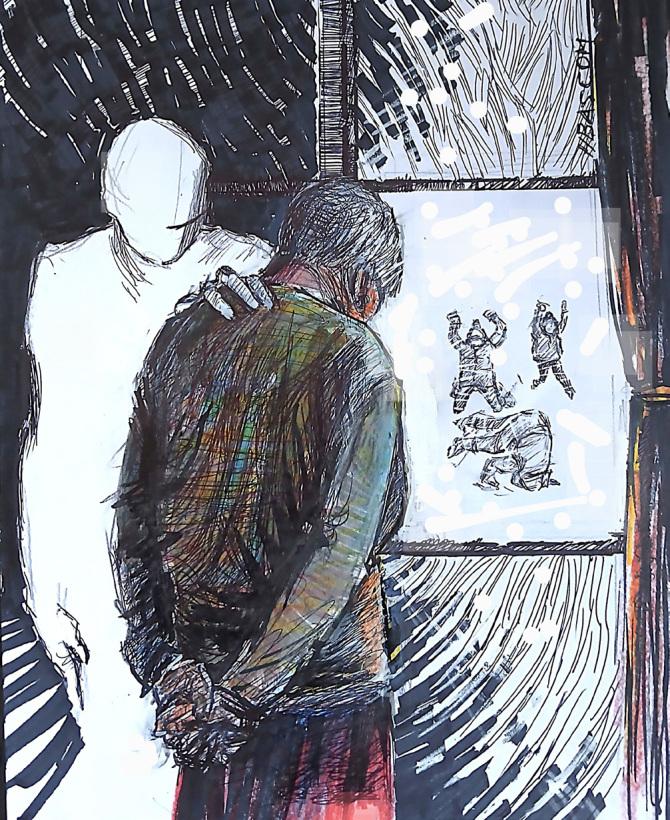
books with me.
The only inconvenience seemed to be the daily injections administered and the chore of having to eat. All that I was told years later regarding my time spent in the hospital, was being allergic to penicillin and having a rare blood type.
Every morning while hospitalised, my brother Kash, twelve years my senior, brought me my favourite comic strips, ‘Mutt & Jeff’ ‘Maggie & Jiggs’ and ‘Blondie’, neatly cut from the daily newspapers. Kash also brought small wooden toys he made in his spare time to keep me entertained. He was a gifted woodworker and made my sister and I beautiful dolls’ furniture, so intricately done, we thought it was the work of Santa’s elves.
I’m sure I had frequent visits from my other siblings, especially Arif, the third eldest of my brothers, who affectionately called me “Bones,” a monicker he still uses today. Arif, my jovial and charismatic brother, always had time to take my
I loved playing with when they thought I was having a much-needed rest.
Khalda, my eldest sister, and her husband Hassan are the ones responsible for getting me hooked on Second World War movies; a period in history that still interests me. I remember being a pre-teen munching through mouthfuls of Smarties, my eyes glued to the screen, as I rooted for the good guys.
I spent many happy years
with my siblings, and being the youngest in a family of seven was indeed advantageous.
Now, reflecting on the relationship I have with them, I see they each influenced my life in a different and positive way. The common bond was their love and caring attitude. I hope they are aware that this feeling is reciprocated.
In 1960s Guyana, Merle
and Aubrey dared to love across divides. Their forbidden romance, born amidst prejudice, blossomed into a lifelong journey that spanned continents. From Guyana’s shores to Canada’s embrace, and through heartfelt letters across the Saudi Arabian sands, their story is a testament to unwavering devotion.
I’ll Buy You Heaven is more than a memoir; it’s a
From page XI
love letter etched in resilience. Merle’s poignant narrative, interwoven with Aubrey’s tender words, reveals a love that defied societal constraints and physical distance. It’s a story that will resonate with anyone who has dared to love without limits. Discover a love that truly bought heaven.
Published by HANSIB PUBLICATIONS. AVAILABLE worldwide from Amazon.
teasing his younger sisters and always tried to shift his naughty pranks on us.
Zorena, three years my senior, and I are close; we did everything together as kids. I remember as teenagers how she always looked out for me, especially when we attended parties.
I don’t know if it was her protective instinct or the responsibility imposed by our parents. It must have been tiring to take care of another when you yourself were so young. She was level-headed and responsible; I in turn, the opposite.
The eldest of my brothers, Zed, sixteen years my senior was like another parent to me. One who also indulged my every whim. Sometimes, while he was courting my sister-in-law, Lyla, who lived outside of the city, I was taken along to visit; I’m sure at my insistence. She came from a family with no small children and, therefore, I was showered with attention. I recall my naps after our Sunday lunches with them. My siesta room had many little trinkets which

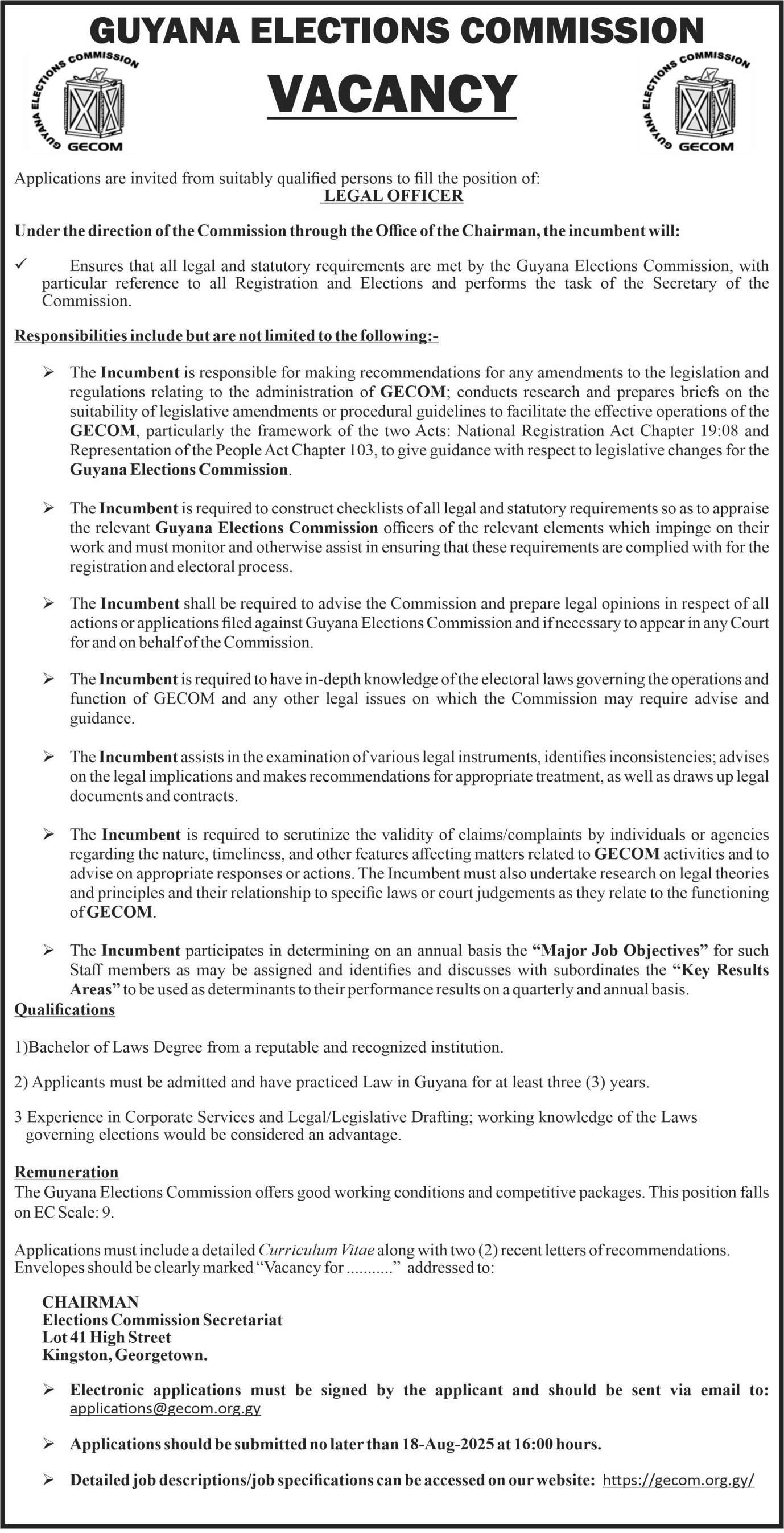
relaxed, family-like environment where residents could feel safe, comfortable, and valued.
Fredericks Senior Citizens Home is more than just a traditional care facility; it offers specialised services to meet a range of needs. As Maxine pointed out, the home caters to both seniors who are relatively independent and those who require full assistance. “We cater to persons who can do a bit for themselves, and even those who cannot do for themselves, we cater to those as well.”
Her team includes retired nurses and professional caregivers who work around the clock to provide consistent, quality care. “We have retired nurses, and we have professional caregivers around the clock for the residents. Most of my employees live in Region Three within the closed environment. I have three teams, and they do three days in and six days out.”
This structure ensures that residents receive not only physical assistance but also emotional support and companionship from caregivers who are familiar faces, not just rotating staff.
One of the most distinctive features of Fredericks Home is its senior citizens’ daycare service — a longheld idea for Maxine but a relatively new concept for Guyana. This service offers a safe, structured, and engaging place for seniors to spend the day while their families attend to work, errands, or simply take a break from caregiving responsibilities. “You want to drop your loved one in the morning, pick them up in the evening, we cater to that, we will provide meals, and we will help manage medication and so forth,” she stated.
The idea came directly from her own experiences caring for her mother, as well as from listening to other families in similar situations. She quickly realised that there was a need for such a service, even if it might take some time for the public to embrace it fully.
“The daycare aspect is still new. We know that there are persons who really don’t want to put their loved one in a home and leave them there. So I think this would be new to our country. It’s something that persons still have to
wrap their minds around,” she added.
“You drop them off, and we will cater to their food, their meals, their snacks, they will be able to participate in whatever they’re doing at the home.”
At the heart of Fredericks’ operations, however, is a simple but powerful principle: respect. Although the home offers a wide range of services and care packages, Maxine insists that treating residents with dignity is the most important part of her work.
“Respect is something that I hold dearly. My mother having a nursing background, I know what is expected. I have done the elderly course, and the training that I received, it tells me about respect and dignity.” She added, “We give them an ear, even if it’s a bit repetitive, I’ll come back. We have to know how to talk and how to treat these folks.”
Today, Fredericks Senior Citizens Home & Services offers both live-in care in a cosy, homelike setting and its innovative daycare programme that keeps seniors active and engaged. Residents enjoy nutritious home-cooked meals, assistance with daily activities, medication reminders, personal grooming, hygiene care, and recreational activities designed to keep minds and spirits active. The home also provides dementia and Alzheimer’s management in a clean, eco-friendly environment.
In collaboration with the Regional Health Office, Fredericks offers free quarterly medical check-ups, free medication, and one complimentary physiotherapy session each month. With compassionate, experienced nurses and caregivers, personalised attention for each resident, and a family-owned, community-focused approach, Fredericks strives to be a peaceful, welcoming space where seniors are treated with the same love, respect, and dignity that inspired Maxine to open its doors in the first place.
To learn more or arrange a visit, Fredericks Senior Citizens Home & Services can be found at Lot 293, 15th Street, Parfaite Harmonie, West Bank Demerara, or reached at 592-682-3100 and fredericks.sch@gmail.com.









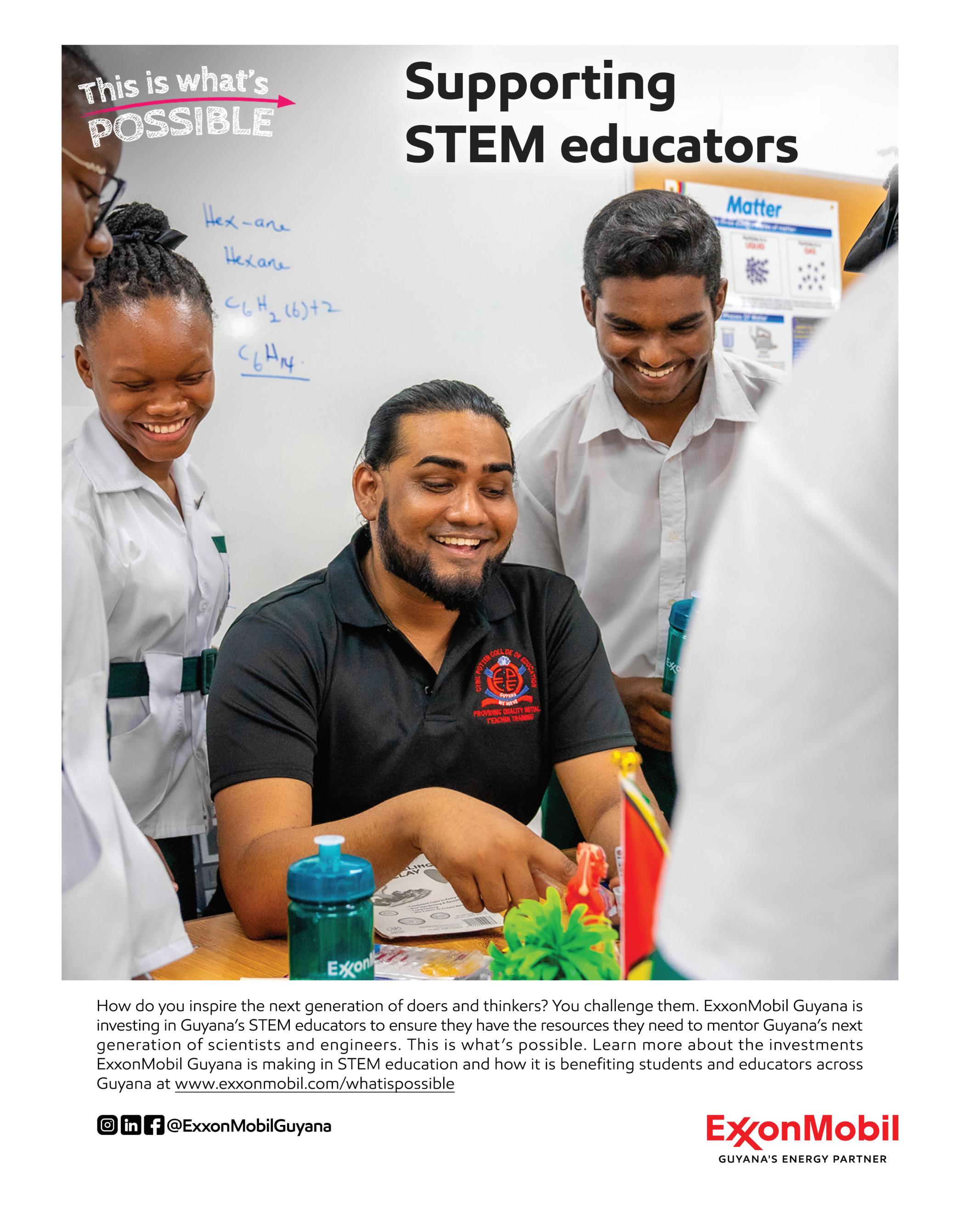

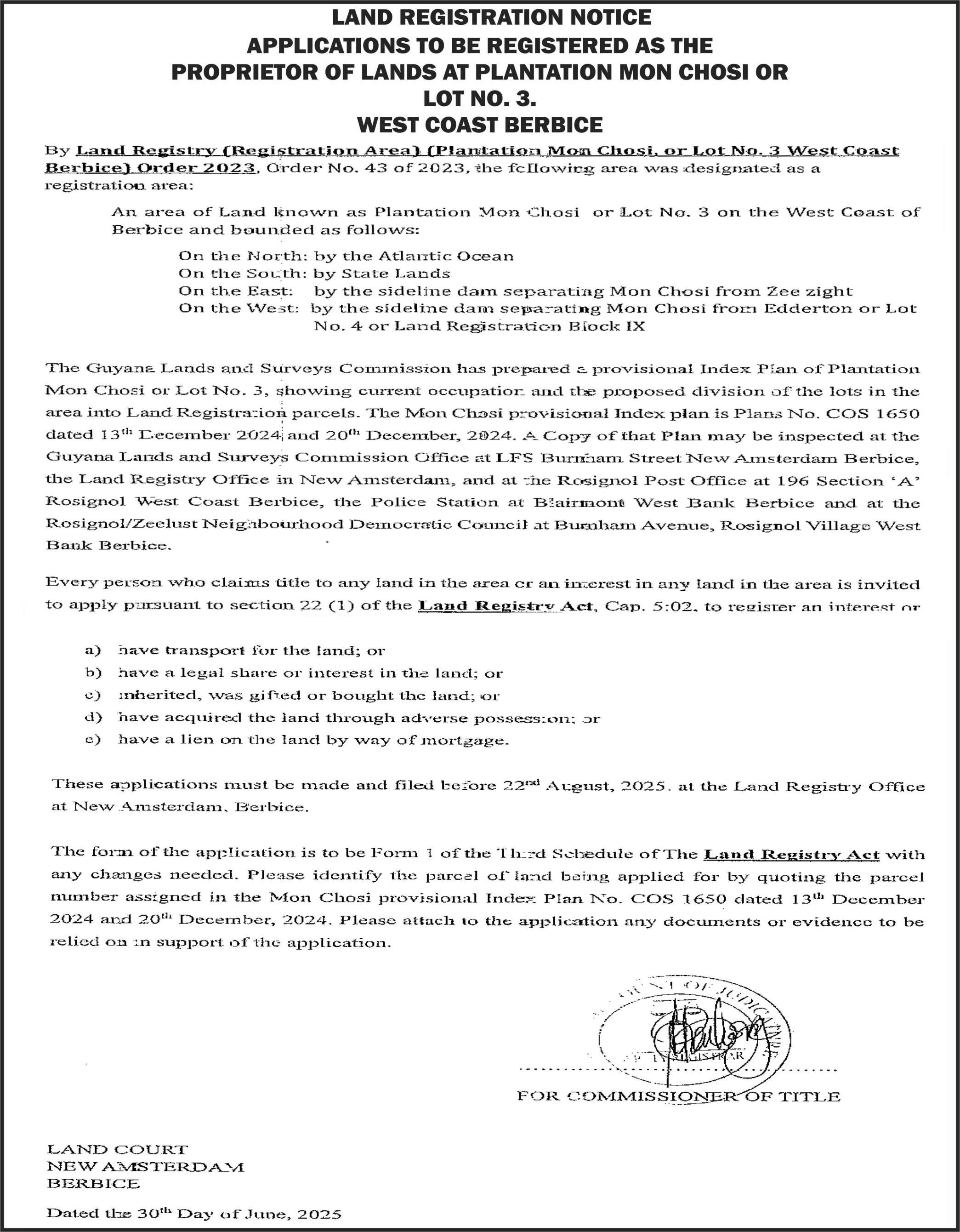
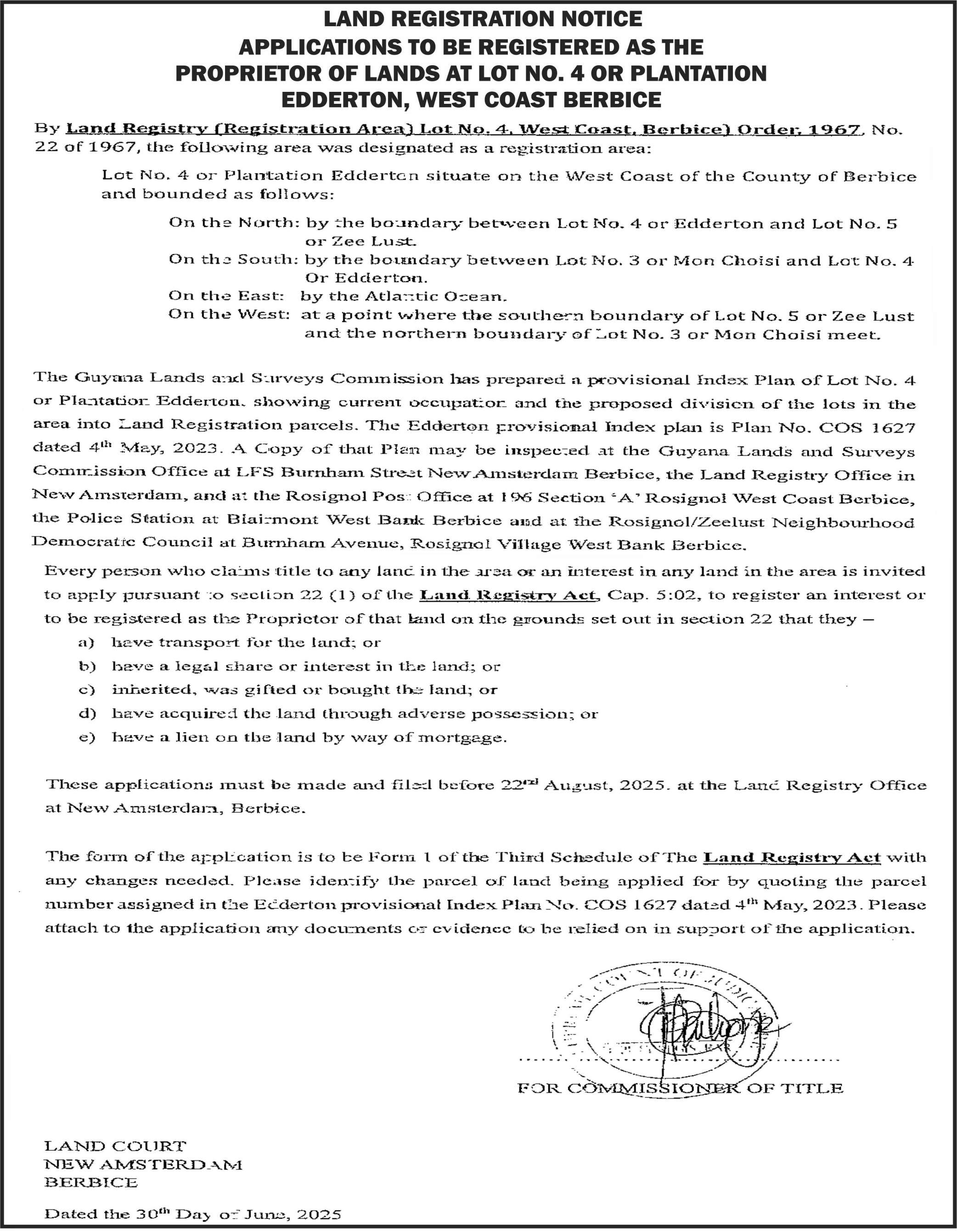






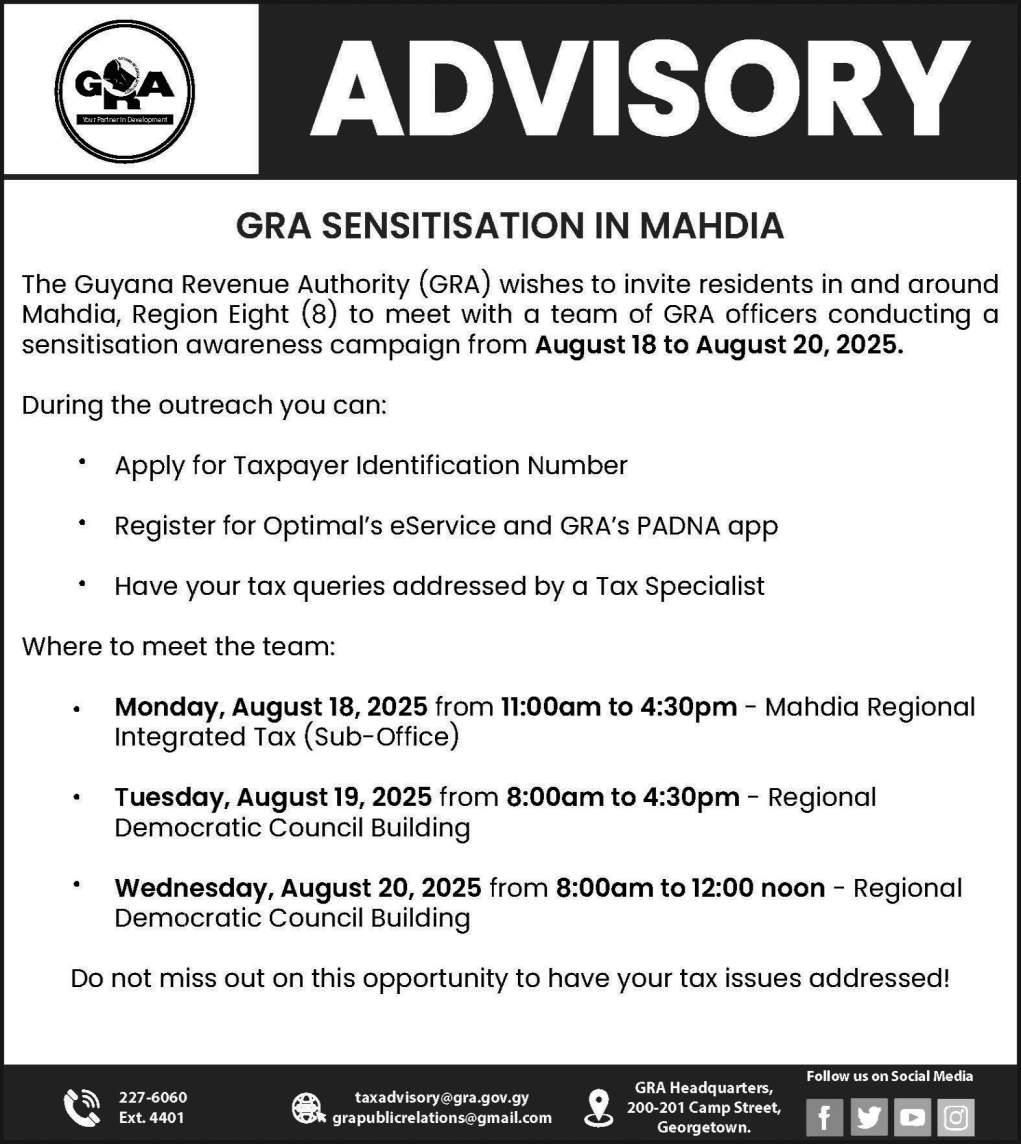
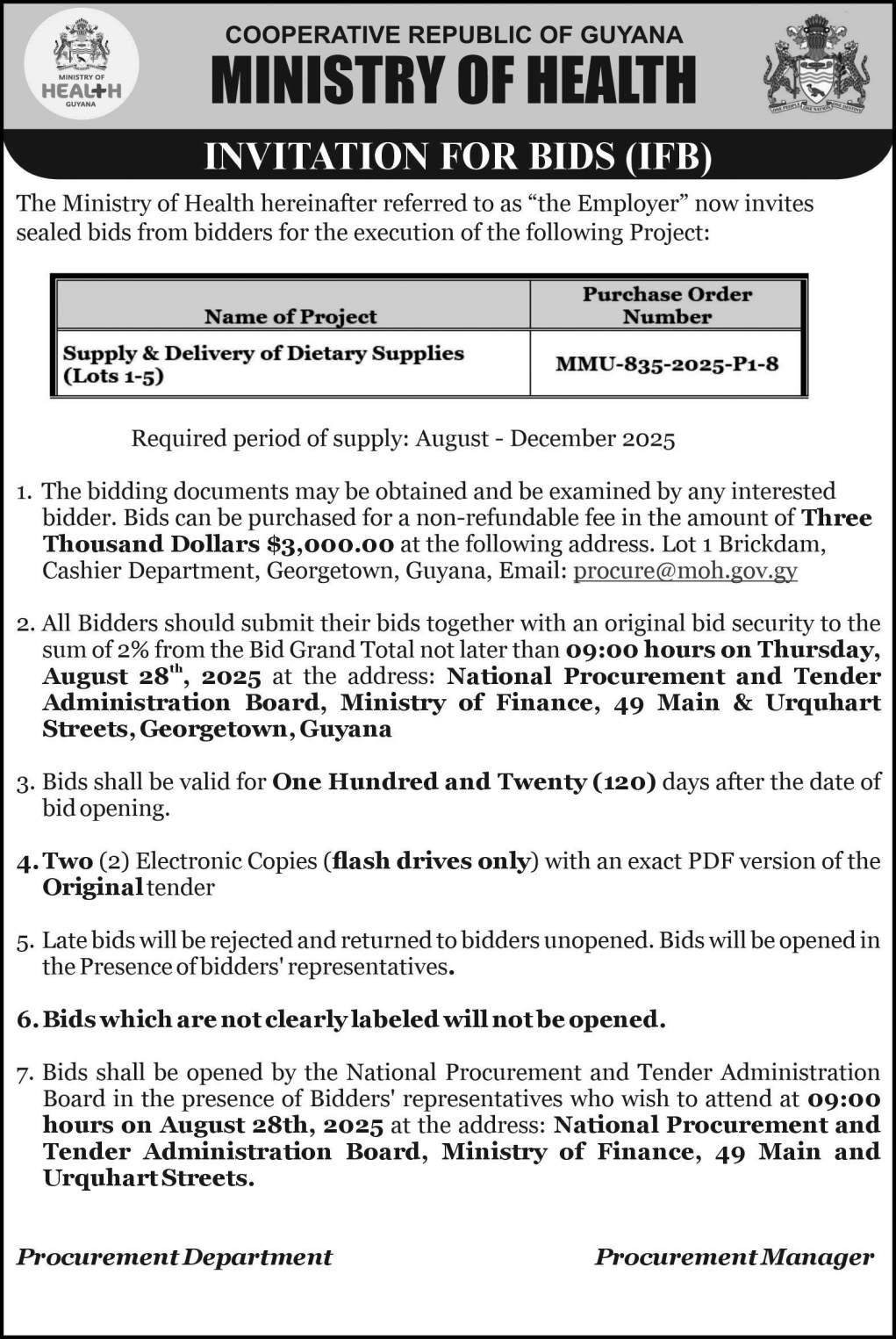







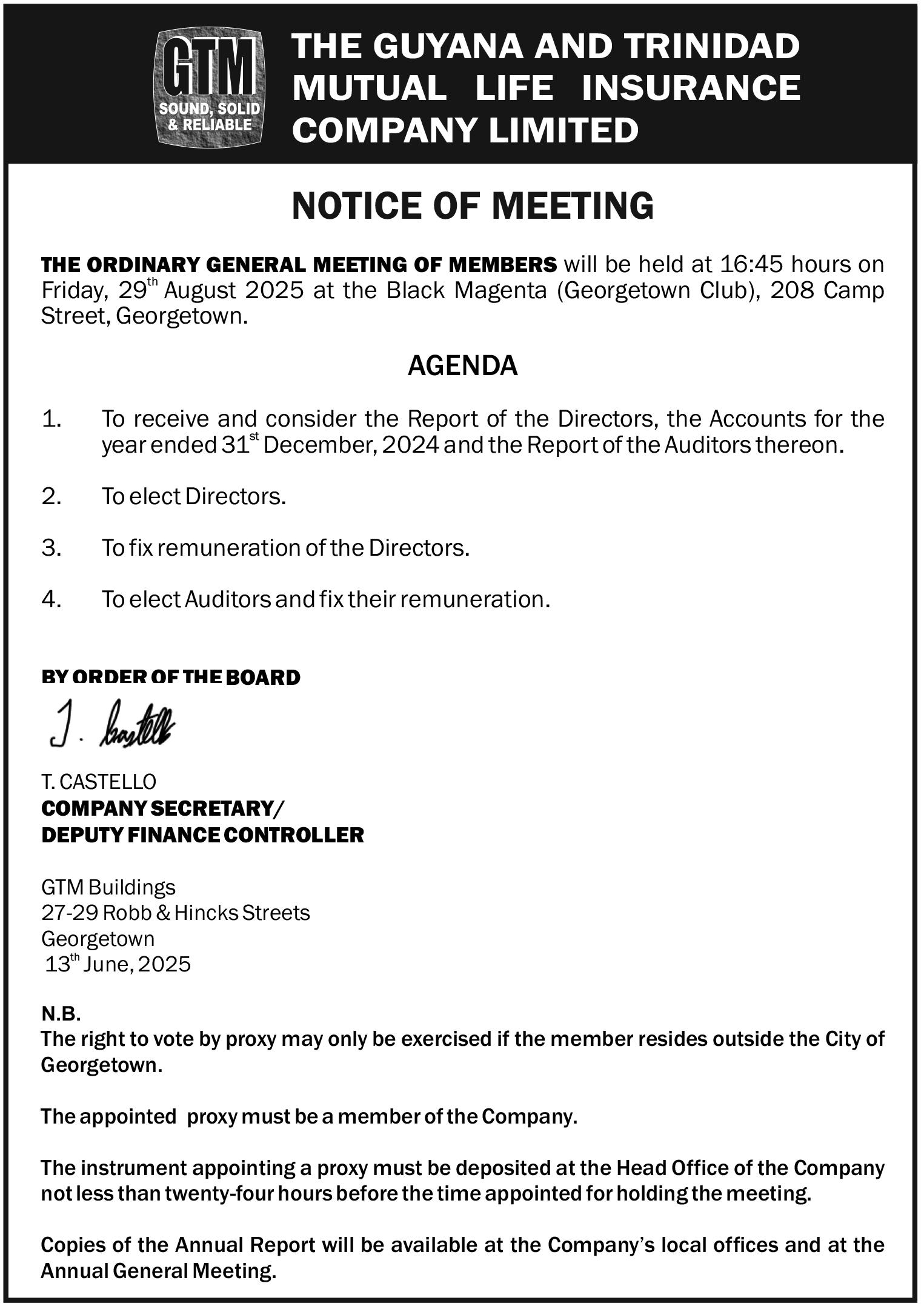


Welcome dear reading friend. Our last issue mentioned the term ‘text structure’. Remember that it refers to the undergirding organisational pattern in which information is framed, which can be narrative, or chronological, or problem/solution, or some other. Whether the writer’s frame is a consciously or unconsciously designed choice, it is reader- recognition that enables focus on such aspects
as key concepts and relationships, problem identification and more. Recognising text structures helps with monitoring your comprehension while you read. Be wise. Love you.
Punctuating a passage with listings Solutions to last week’s punctuation passages. Note that the various punctuation
styles emphasise the choices of the respective writers of the children’s books from which they came.
1. The Sugar Shack was an exceptional candy store. It had bins full of M&M’s separated into colours so if you wanted exactly eleven greens and eleven blues, but no yellows, reds, or oranges (as Bat did), you could get exactly that.
Along the back wall were all the gummies - gummy

August 17, 2025
bears, gummy worms, gummy sharks, gummy hippos, gummy rhinos, gummy jellyfish. Gummy dinosaurs. Gummy frogs. Gummy sea stars. Gummy zebras, gummy camels, gummy parrots. Gummy crabs.
Bat didn’t like gummy candy, but he always got one gummy sea star; anyway he liked the way they felt in his hand.
2. Let the dough sit at room temperature 5 to 10 minutes on a lightly floured surface. Roll each batch of dough to a 12” round. Transfer one round to a 9” pie plate. Gently press sides down to make sure there are no gaps. Cut second round into 1”-thick strips for a lattice top, then place on a large cutting board. Refrigerate both until cold about 15 minutes.
3. The food was spread along a much larger table, buffet style, in glistening abundance – chicken teriyaki, pickled vegetables, egg rolls, cucumber and abalone salad, the seaweed-wrapped rice balls called sushi, shrimp prawns, fresh lobster, and finally, taking up what seemed like half the tablecloth, a great gleaming roast pig with a bright red apple in its mouth.
THE PASSAGE
Reading comprehension
The Lowest of the Low
Located about 250 miles east of the Mariana Islands in the Pacific Ocean is the lowest point on the surface of the earth. The Challenger Deep, named after the British survey ship Challenger II that first mapped it in 1951, is the location of the greatest depth ever recorded in the oceans of the world. At 35,850 feet (or about 7 miles), the Challenger Deep is so far below the water’s surface that you could fit Mount Everest into it and still have a mile of water overhead.
The tremendous depth results in extraordinary water pressure - about 16,000 pounds per square inch – and the bottom of the chasm is shrouded in total, permanent darkness.
For these reasons, the Challenger Deep is home to strange and hardy creatures that have evolved adaptations to allow their existence in this inhospitable world. For
The cook was a good cook, as cooks go; and as cooks go she went.
‘SAKI’ (H.H. MUNRO) (1870-1916) Reginald on Besetting sins
humans, however, the trench is so remote and dangerous that it has only been visited a handful of times, and our understanding of this geological feature is in its infancy.
1. What information are you told about the position of the lowest recorded point on the surface of the earth? Suggest other location pointers that an interested person should like to know?
2. When was this lowest point on the earth’s surface mapped and by what means?
3. “The Challenger Deep, … is the location of the greatest depth ever recorded in the oceans of the world”. Do you think that the statement says that there might be other great depths in the oceans of the world recorded or not recorded? What is your understanding of it? Quote the 4 words that give the implication.
4. About how tall is Mount Everest?
5. What do you personally know about the Mariana Islands? Tell your study partners.
6. Give an idea of the following phrases: a mile of water overhead, about 16,000 pounds per square inch, permanent darkness, creatures that have evolved adaptations, inhospitable world, it has only been visited a handful of times, in its infancy.
7. “ The trench is so remote and dangerous.” How is the geographic phenomenon on the earth’s surface referred as? How does the term “trench” help you understand about the ocean floor at that point?
8. Compose a statement describing the central idea of the passage.
IMPROVING
Punctuating a passage containing direct speech
Note: Direct speech is
when we report or use the exact words spoken by a person.
There are times when the reporting clause or tag comes before the direct speech and sometimes after. When the reporting clause appears before the direct speech put a comma after it so it appears before the direct speech, then write the exact words of the speaker in a pair of inverted commas. Have a capital letter at the start of the direct speech. Write a full stop, question mark or exclamation mark before the closing inverted comma of the direct speech. For example: The vagrant begged, “Please for some money to buy something to eat.”
When the reporting clause or tag is after the direct speech use a comma after the speech. Example:
“Please for some money to buy something to eat,” the vagrant said.
Sometimes direct speech is divided into two parts with the reporting clause between the parts. The second part of the direct speech starts with a common letter if the same sentence is now being completed. Still put a comma after the first part of the direct speech even if it is a complete sentence. For example:
“Please give us some money,” said he, “we need it to buy food.”
Directions: As you punctuate the passage, make note of how the writer expresses his thoughts.
I suppose I could do it to oblige you said Anne thoughtfully it is true enough to say I am sorry now I wasnt a bit sorry last night I was mad clear through and I stayed mad all night I know I did because I woke up three times and I was just furious every time but this morning Turn to page XXXIX

OUR bodies make use of electricity for many of their functions. This type of electricity involves the movement of a part of the atom (ion) into the cells. This, known as active potential, enables us to stand, read, react to pain, and so on. But what if we unnecessarily create electricity with materials placed in our mouth permanently?
There are common types of metals used in dental work, such as crowns, amalgam fillings, and dentures. These metals, when placed in the mouth, sit in a medium of saliva, which turns the mouth into a charged battery. We call this charge galvanic toxicity. Common signs and symptoms of galvanic toxicity are a metal taste in the mouth, an electrical charge with utensils and insomnia. Occasionally, a person can have a toothache only because there is gold and amalgam in their mouth. The “shocking” sensation is really coming from the battery they have created.
Additionally, such electrical charges can have a detrimental effect on decayed teeth. You see, teeth have roots with main canals and thousands of side canals, and contained in those sides are miles of nerves from the main canals. However, they do not have access to the microscopic side canals, which have dead nerves left behind in those spaces.
Anaerobic bacteria, which do not require oxygen to survive, thrive in the side canals, growing and excreting toxins from digesting necrotic tissue that leads to chronic infection.
Blood supply and lymphatics that surround those
dead teeth drain this toxicity and allow it to spread throughout the body. This toxicity will invade all organ systems and can lead to a plethora of diseases, such as autoimmune diseases, cancers, musculoskeletal diseases, irritable bowel diseases, and depression.
The following is an actual case study from my office, detailing a patient's initial dental visit. She related a three-year history of breast cancer treated conventionally.
Three years later, her cancer recurred, and she decided to seek alternative treatment rather than conventional treatment. She sought therapies for a period of five months from two well-known physicians practising these therapies. She then followed up with my office to get a complete dental exam and diagnosis.
I took her history and examined the patient. I discovered that since her diagnosis of cancer, all the physicians, conventional and alternative, failed to ask or even consider her dental history as a necessary part of her treatment or the possible association or connection to the root of the disease.
It is not surprising that conventional physicians do not consider dental history as being associated with any disease process, but it is certainly absurd that alternative physicians fail to even consider it.
Upon my examination, there were several acutely infected teeth, a root canal and severe gum disease that were totally missed. Certainly, the conventional therapies and the alternative therapies that this patient received
From page XXXVIII
will most likely fail as this patient continues to harbour infection in her mouth that has chronically compromised her immune system and has
weakened her overall ability to eliminate toxicity and to heal as a whole.
The toxicity that continues to thrive in her mouth is
it was over I wasnt in a temper any more – and it left a dreadful sort of goneness too I felt so ashamed of myself … but I just couldn’t think of going and telling Mrs. Lynde so humiliating I made up my mind id stay shut up here forever rather than do
that but still – id do anything for you – if you really want me to –
Well now of course he said I do its terrible lonesome downstairs without you just go and smooth out things over – that’s a good girl.
being carried by the blood and lymphatic system to all areas of her body and is contributing to her inability to fight cancer. So, it’s
important to look at the situation as a whole and the mouth as an essential part of our health and its contribution to disease.
